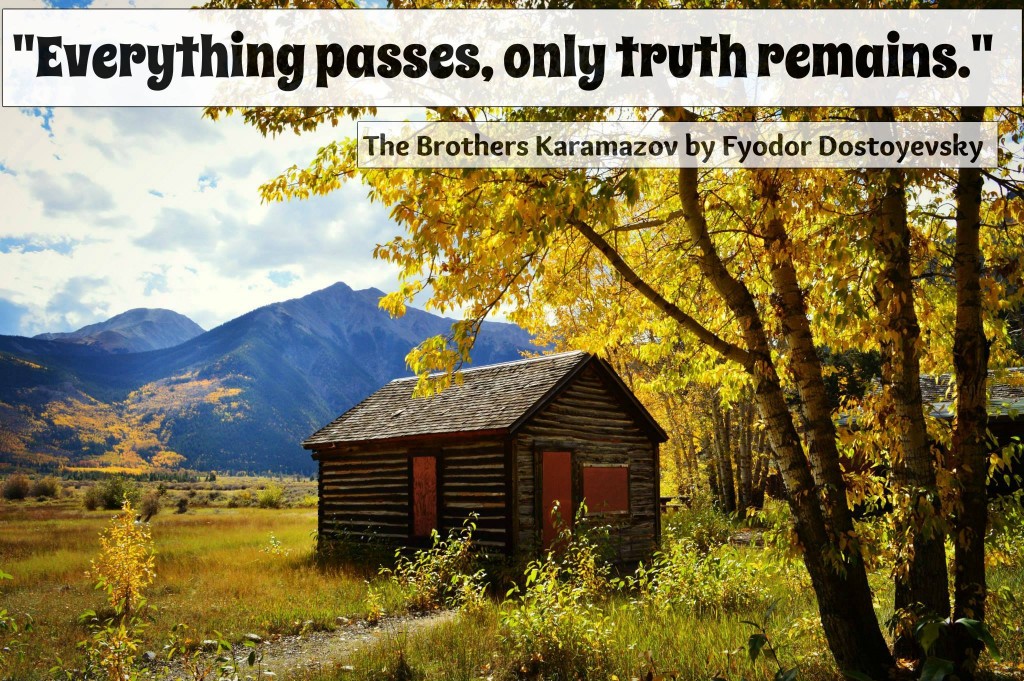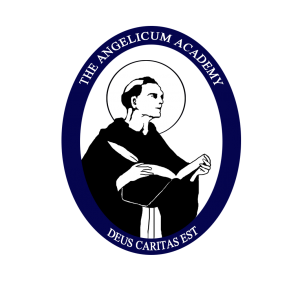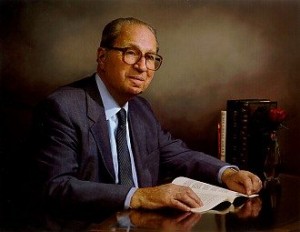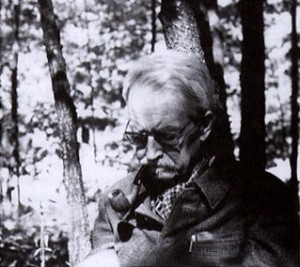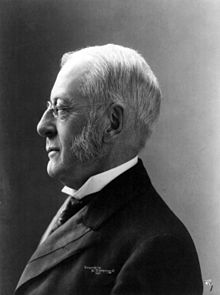Articles on the Great Books as an Essential Element of Classical Education
“We are tied down, all our days and for the greater part of our days, to the commonplace. That is where contact with the great thinkers, great literature helps. In their company we are still in the ordinary world, but it is the ordinary world transfigured and seen through the eyes of wisdom and genius. And some of their genius becomes ours. . .”
– Mortimer J. Adler
“I am convinced that classical education holds out the greatest hope for our children’s future flourishing and for renewal of Church life.”
– Archbishop Salvatore Cordileone
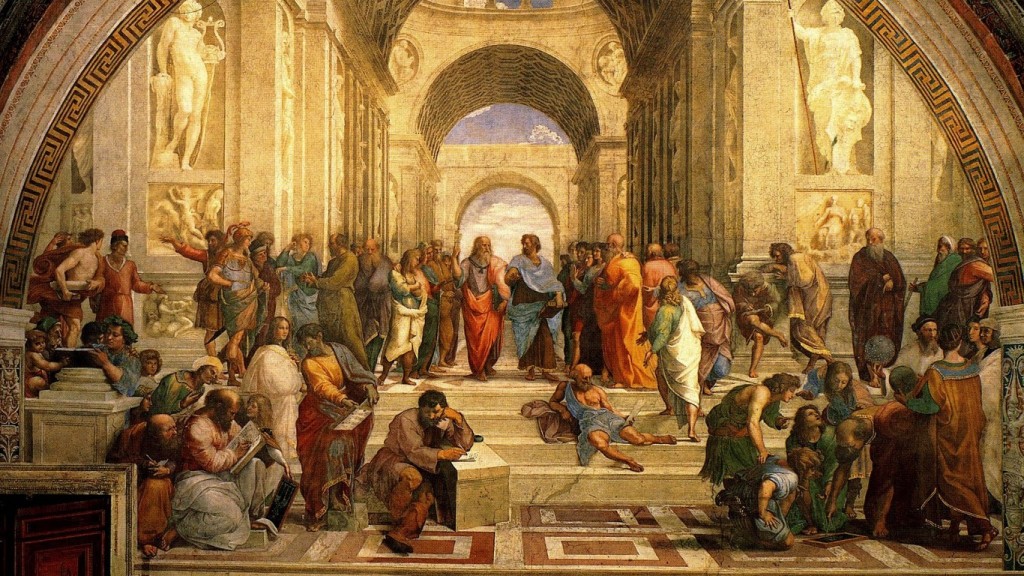
Please click on any of the articles below for more information on the Great Books as an essential requirement for authentic Classical Education. They are the “textbooks.”
From one of our first students…If it’s anybody’s fault that I’m doing this crazy PhD thing now, it’s you – Great Books opened the lid of my world and set me on fire. I’m forever grateful for the program and the education I received from it; it is one of the greatest gifts I have ever received, and one that continually bears fruit and enriches my life in new and beautiful ways. I can never repay you for believing that 15-year-olds are capable of reading as much as graduate students! In a way my serious relationship to the Western canon began 15 years ago, in your classroom. This led to my place now, as a sort of professional bookworm. My life as it stands is pretty great, and I owe a lot of where I am now to you. Thank you so much for teaching. Pax, Kelsey B.
The Best Age to Begin the Study of the Great Books
by Patrick S.J. Carmack
Anytime available for leisure is a good time to begin or resume the study of great books. However, for young people who have never studied them, two limitations frame the answer to the question: when is the ideal time to begin the study of the Great Books? The first is a limitation intrinsic to the student, the second extrinsic:
1.) The student must be able to read reasonably well, and ideally should also be able to write, speak and listen well. In other words, a Great Books student should have completed the study of the trivium–the elemental liberal arts–and so know how to read, write, speak and listen well. I would add to those arts the ability to use a personal computer to locate and read the various texts and commentaries and to write and submit essays online. Given that these learning arts are typically taught in the elementary grades (1st-8th), the study of the Great Books logically should follow sometime after completion of 8th grade—primary education.
2.) The other limit is imposed by factors extrinsic to the student: the responsibilities and financial pressures of rising college costs, housing, student loan debt, costly auto and health insurance, marriage and parenthood, effectively end the availability of sufficient leisure time and financial resources necessary for formal, liberal educational opportunities for most college-age students. By that age students are under increasing pressure to complete some specialized, vocational or professional education in order to generate an income to fulfill those responsibilities and limit their debts.
The conclusion is that—ideally—Great Books education should begin after the first eight years of primary education, during the whole of secondary education—the four high school years. For most students this means beginning the study of the Great Books in 9th grade (14 year olds) or after, and continuing at least through 12th grade (18 year olds or so).
In the United States the high school years at schools are too often an intellectual wasteland, as most high school graduates would readily attest, which needlessly protract study of the trivium which has been expanded into secondary education due to our remarkably ineffective public (and most private) elementary school education. This is supplemented with thin-to-bad literature selections (such as much of that proposed by Common Core), with much time wasted on dubious social engineering materials and insipid textbooks designed by large publishing houses for the “average” student. Dr. Adler:
“As far as the United States is concerned, the reorganization of the educational system would make it possible for the system to make its contribution to the liberal education of the young by the time they reached the age of eighteen…The tremendous waste of time in the American educational system must result in part from the fact that there is so much time to waste.”
Many years ago–from the Middle Ages to the last century–the Bachelor of Arts (B.A.) degree signified completion of the secondary level of education (following the elementary, grammar or primary level) and so readiness to enter into the third level of formal education – the university, for specialization in one’s chosen field. With that background in mind Dr. Adler wrote:
“If I had any hope that in the foreseeable future, the educational system of this country could be so radically transformed that the basic liberal training would be adequately accomplished in the secondary
[i.e., high] schools and that the Bachelor of Arts degree would then be awarded at the termination of such schooling, I would gladly recommend that the college be relieved of any further responsibility for training in the liberal arts…if we are going to have general human schooling in this country, it has to be accomplished in the first twelve years of compulsory schooling…it would be appropriate to award a Bachelor of Arts degree at the completion of such basic schooling. Doing so would return that degree to its original educational significance as certifying competence in the liberal arts, which are the arts or skills of learning in all fields of subject matter.”
Renowned Catholic philosopher Jacques Maritain held virtually the identical view as Dr. Adler: “I advance the opinion, incidentally, that, in the general educational scheme, it would be advantageous to hurry the four years of college, so that the period of undergraduate studies would extend from sixteen to nineteen. The B.A. would be awarded at the end of the college years [thus at 19 years of age], as crowning the humanities…” Their view of completing generalist, liberal education by age 18-19 is nothing new in this country.
In colonial America, before entering school at the age of fourteen or fifteen, students were expected to be able to speak Latin, and in college they were fined for not speaking in Latin, except during recreation. Latin was the language of most of their textbooks and lectures. Knowledge of New Testament Greek was required for admission, and students also studied Homer and Longinus in Greek. In Latin the chief authors were Cicero, Virgil, and Horace. A lifelong interest in the classics was common. “Every accomplished gentleman,” says Wertenbaker, “was supposed to know his Homer and his Ovid, and in conversation was put to shame if he failed to recognize a quotation from either.” Self-made men, like Benjamin Franklin, without the benefit of college, derived more from the ancient world than one would expect, but the more typical Founding Fathers meditated long and deeply on the ancient patterns of democracy and republics, and Jefferson was only expressing a frequent view of his time when he said of ancient literature: “The Greeks and Romans have left us the present models which exist of fine composition whether we examine them as works of reason, or style, or fancy… To read the Latin and Greek authors in the original is a sublime luxury.” The history, philosophy, and literature of the ancients did not seem remote or antiquated, but intimately present because permanently enlightening.
In the Harvard Classics, Harvard President Dr. Charles Eliot prepared a selection of 60 readings from that great books set to provide a “pleasant introduction” to it for students ranging in age from 12 to 18, and stated “There is no place where the Harvard Classics find greater usefulness than to children [referring to the same 12-18 year old readers]. If you have children in your family… let them have free access to the Harvard Classics [which] will bring to the growing boy and girl a familiarity with the supreme literature, at the impressionable age when cultural habits are formed for a lifetime.”
Scientific research strongly supports Dr. Eliot’s opinion. In a study published in the Journal of Philosophy in Schools (2015) several faculty members from Sam Houston State University in Texas decided to replicate a 2007 study conducted in Scotland on the effects of a philosophy for children program. Philosophical works are a large component of Great Books courses. The original study was one of few randomized, controlled clinical trials assessing the impact of a philosophy for children program. It showed significant gains in cognitive abilities by children who participated in weekly philosophical group discussions.
This new study found that the seventh-grade students who had experienced the philosophy for children program showed significant gains relative to those in the seventh-grade control group, providing evidence for the main contentions of the original 2007 study — namely, that “regular, one hour per week, structured community of inquiry philosophy for children sessions are a relatively powerful educational intervention which boosts students’ cognitive abilities significantly while doing so at a very small cost both in materials needed and in instructional time.”
Another study by Durham University in the United Kingdom further strengthens the case for philosophy for children and provides evidence for its efficacy as an intervention in closing the achievement gap. This study, which included more than 3,000 students in 48 public primary schools across England evaluated January-December, 2013, found that “pupils’ ability in reading and math scores improved by an average of two months over a year,” but, more importantly, that the “disadvantaged pupils in the trial, those on free school meals, saw their reading skills improve by four months, their math by three months and their writing ability by two months.”
Nobel Prize-winning University of Chicago economist Gary Becker made much the same point about the importance of early education when he noted the effect of the lack thereof in the bottom 20 percent of the income distribution in the United States, in which too many children are neither learning the skills nor adopting the habits and values that other children acquire. One result is increasing income inequality. For example, prior to 1950, college graduates earned about 40 percent more than high school graduates, on the average. Today they earn 80 percent more.[i] Thus education prior to college admittance age (roughly age 18) is increasingly important in our society. When is it too late to make up for deficient early education? Becker says studies show that government job-training programs for 16-year-olds do not succeed because they cannot overcome the failure to learn skills in their first 16 years.
Can government schools solve the problem by providing early education and skills that traditionally have been provided by parents? Becker, citing various studies, concludes there is no evidence government schools can solve the problem. What about replacing real mothers with professional day care personnel? Sweden tried that on a grand scale—a literal, Spartan-like nationalization of the family—at great social cost, but found no evidence of positive effects on children. By contrast, early home education in the liberal arts, complimented at the secondary level with general liberal education in the humanities such as is contained in the great classics, offers a well-tested, traditional solution to the current educational crisis. As schools in general do not offer such an education at the secondary level (which has been increasingly “dumbed down” in Gatto’s phrase), it is left for parents and educators to find alternative ways to provide this for their students.

James Heckman, Nobel Laureate, 2000 Researched the Lifecycle Dynamics of Skill Formation
Studies by another Nobel-Prize winning (2000) economist at the University of Chicago, James Heckman, found that “enriched environments” of learning enhanced IQ: “But that’s because when a kid is in a program, he’s being enriched and being enhanced… there is a [IQ] fade out that occurs when people get out of these enriched environments… We’re so used to thinking of IQ as being genetically given, used to thinking of these traits as somehow embedded at birth, but they’re not. The whole literature in genetics is now talking about gene-environment interactions: epigenetics.” Public schools, and most private ones, too often provide impoverished learning environments using inferior texts, as if the learning environment did not matter – Heckman’s studies show it does.
Heckman wrote: “When you raise Rhesus monkeys (they share about 95 percent of humans’ genes) with a form of disadvantage, you affect 23 percent of all their genes. The genes are there, but the genes themselves don’t do anything. So you can have two identical monkeys, one raised in adverse conditions, another one raised in good conditions, and 23 percent of their genes will be different. The fact of the matter is, environment matters.” In human education, the texts used and studied are a large part of the learning environment. Heckman’s studies support the notion that the texts used in human education should be as rich as possible, as early as practicable. It reasonably follows that the habit of study of great books – the richest of intellectual texts – should be developed as early as practicable, given the capacities of the students.
Heckman: “We do know roughly that the early years are very important and the later we wait, the harder it is [to enhance IQ]. We know there are a lot of differences genetically; there are a lot of differences that emerge. I’ll give you an example of gene-environment interaction. James Q. Wilson and Richard Herrnstein wrote a book called Crime and Human Nature about the determinants of crime. They said there is a genetic predisposition for crime, and there is! Have you heard about the MAOA gene? If you go to the State Prison of Georgia or any other prison you’re going to find an overabundance of what are called ‘MAOA genes.’ This gene is very predictive of violence, especially early onset violence. But it turns out — and this is an amazing finding, within the last several years — if you take two individuals with the same MAOA gene, one raised in a middle class environment, one raised in an environment with a tremendous amount of violence in the background and not much family support, it is only in the latter environment that the MAOA genes show any predictive power for criminality. In the middle class environment, it’s as if it never was there. That’s a powerful gene-environment interaction. And that’s just one gene! When you’re thinking about all of the genes we have and that 23 percent of all of them could be affected by these early environments.”
Genes are very important, but the environment in which genes are expressed is often your destiny. Heckman writes: “ I think [environment] is powerful. You can shut down the operation of a gene, because certain aspects of the gene will never manifest themselves, or certain negative aspects can be reinforced by it. The gene is still the same but it can be shut down, or it can be enhanced. We can change who we are. We can improve ourselves in various ways and we can give ourselves possibilities. What I’m thinking of is a sense of capabilities. It’s basically saying, give a child more possibilities to do whatever he or she wants to do with their life. So you give them more capacities: more capacities to solve math problems, more capacities to do music, etc.” [“It Pays to Invest in Early Education Says a Nobel Economist Who Boosts Kids IQ; Making Sense” – Feb. 22, 2013].
We believe a program of study of the world’s greatest literature covering the broad range of human intellectual endeavor and experience, is precisely the formula for enriching students’ learning environments, exposing them to more possibilities in life, and expanding their capabilities to pursue what is great, true and beautiful.
Adler too had great respect for the potentialities of the minds of teenagers, and did not want to see those formative years wasted, entailing the risk of losing the opportunity for liberal education altogether, which is so often the case. In a 1970 appearance on the TV show Firing Line, hosted by William F. Buckley, Jr, Adler had great respect for the potentialities of the minds of teenagers, and did not want to see those formative years wasted, entailing the risk of losing the opportunity for liberal education altogether, which is so often the case. In a 1970 appearance on the TV show Firing Line, hosted by William F. Buckley, Jr, Adler made the point that liberal education, the backbone of which is study of the Great Books (rather than a disorganized, smorgasbord of electives), should be completed by the end of secondary (high) school:
“I think the liberal arts degree is given four years too late. I would take American schooling and cut it down, and make it European in this sense: six years of elementary schooling; six years of secondary (lycee, gymnasium – high school); the collegiate degree (i.e., the Bachelor of Arts) coming at the end of that [i.e., at the conclusion of secondary/high school education – 12th grade in the US]…I might extend that by taking [into account] the differences in the population: I might have the very brightest twelve years [i.e., through 12th grade]; for the next level thirteen years; and the last, fourteen years, but not more than fourteen.”
That was Adler’s view in 1970, after spearheading the Great Books Movement, with Robert Hutchins, President of the University of Chicago, for half a century. For the next three decades until his death in 2001, Adler’s view did not change, rather it was repeatedly confirmed. In 1983 Adler wrote: “I have been conducting seminars for 60 years now, with students in high schools and colleges and with adults who have engaged in the reading and discussion of great books or who have been participants in the Aspen Executive Seminars. Long experience has convinced me that seminar teaching, on the Greek or Socratic model, not the German one, belongs not only in the colleges, but should be carried on also in high schools, where students have proved every bit as able to profit from seminars that I have conducted as have their college counterparts–have shown themselves even better participants in some ways.”
Three years later, in 1986 Alder again wrote: “Ideally, everyone should be both a generalist and a specialist–a generalist first at the level of basic schooling…Schooling from kindergarten through 12th grade would initiate the young in the process of acquiring general, liberal, and humanistic learning. The colleges and universities to which some of them then went would afford them opportunity for specialization in a field or fields that they elected to pursue.”
Seven years later, in 1990 Adler reaffirmed his consistent view that the Great Books should be studied in the high school years, “before age eighteen.” In a talk to the National Press Club on October 30th that same year, Alder made it clear that even 16-year- olds were quite able to complete a four-year program of study of the Great Books: “I wanted to have graduation from high school at age 16, not 18.”
In 1992 he wrote: “I even went so far as to suggest that the B.A. degree be given on graduation from high school, signifying the completion of the first stage of general education, and that undergraduate colleges becomes three-year institutions, giving the M.A., or some similar degree, for the completion of the specialized course, with a little general education retained as a carry-over from high school…If high school were completed at age sixteen instead of eighteen, then I proposed that, in the next two year , there should be compulsory nonschooling…as a result of two years of work experience, either in private or the public sector of the economy…they would be better students in college, because they would be more mature; and they would have a better sense of what they wanted to do with their lives.”
What about those who were unable to obtain a liberal education in high school? In 1992 Adler wrote that taking up the study of the great books after specialization in college was the next best alternative: “If future citizens were to be given that kind of education, which I thought prerequisite for the intelligent discharge of their civic duties, then that would have to be done before they went to college, or after they graduated from college, or better, at both times of their lives.”
This will doubtless raise the question in some minds as to whether, if one missed the opportunity in high school or homeschool, one ought to study the Great Books in a liberal arts or Great Books college program. The answer is certainly yes, to which the demand for Great Books college education, testified to by the growth and spread of Great Books colleges and Great Books college programs, such as at Columbia University, The University of Chicago, St. John’s College (Annapolis and Santa Fe), St. Mary’s College (Morgana, CA), Thomas Aquinas College (Santa Paula, CA), Gutenberg College (Salem, OR), Notre Dame’s Great Books Honors program, and at many other colleges and universities, gives eloquent testimony.
However, the vast majority of the 4,500 or so US colleges and universities do not offer a Great Books program, and while the list that do—at least in some fashion (from one or two courses up to four-year programs)—has grown to over 100 (see the Appendix for the list of these), that still represents only about 2% of the total number of colleges and universities in the US. Another 10% or so of tertiary institutions are liberal arts colleges, in varying degrees, but do not offer Great Books programs. Thus Adler’s advice above, to study the Great Books either before or after college, or both, remains relevant for the great majority of students, including his consistent advice to begin such study during the high school years, if possible, for the several reasons mentioned.
Three FAQ (discussed in order, following)
• Are the Great Books too difficult to be mastered by teenagers?
• Would the study of a small number of Great Books be sufficient for such an educational approach?
• If a student begins a Great Books program, what should the accompanying curriculum in other subjects look like?
1.) Are the Great Books too difficult to be mastered by teenagers?
Yes, they are too difficult to be mastered by young students. But that is beside the point—no high school, college or university student can “master,” plumb the depths nor exhaust the Great Books– that is the work of a lifetime. The error implicit in this objection is that schooling and education are synonymous, and that therefor mastering material–certainly one goal of education—must therefore take place at some point during formal education. Adler addressed this objection as follows:
“No one can become an educated person in school, even in the best of schools or with the most competent schooling. Schooling is only the first phase in the process of becoming educated, not the termination of it.” Education should not be identified with schooling. Rightly conceived, education is the process of a lifetime, and schooling, however extensive, is only the beginning of anyone’s education, to be completed, not by attendance at educational institutions in adult years, but rather by the continuation in learning through a wide variety of means during the whole of adult life. Hutchins put it well: “The college graduate is presented with a sheepskin to cover his intellectual nakedness.” Schooling can and should be terminated at a certain time, but education itself cannot be terminated short of the grave
If mastering the Great Books is beyond the ability of young students, what then is the point of studying them in high school or college? Stringfellow Barr, co-founder of the Great Books program at St. John’s College, Annapolis, responded to that question by saying that the students in the program were not expected to master the great books; few if any adults could be expected to do that. At St. John’s, he said, “the great books serve the purpose of a very large bone thrown to a young puppy. The puppy will wrestle with it, will probably not get much meat off it while agitating it, but will certainly sharpen its teeth in the process.”
Jacques Maritain makes the same point with a like metaphor: “One cannot emphasize too much the educational role of the great books. Yet this role does not only consist in sharpening the intellectual power of the youth; they are not only like a large bone with which a puppy struggles so that his teeth may grow sharper. To bring the metaphor to completion, it should be added that this large bone is a marrow-bone, and that not only do the puppy’s teeth have to grow sharper, but his living substance also has to feed itself upon the valuable marrow. It is doubtless not a question for the young student of “mastering” the great books, but of discovering and being quickened and delighted by the truth and beauty they convey—and, if they convey errors too, of discerning and judging the latter, however awkward and imperfect this process may be at first. The intellect’s teeth are not really sharpened if they are not able to separate the true from the false.”
While mastery of the great books is beyond them, Adler noted that high school “students have proved every bit as able to profit from seminars that I have conducted as have their college counterparts–have shown themselves even better participants in some ways.” Again, “In 1933-34, Bob Hutchins and I undertook to read the great books with a selected group of juniors and seniors in the University [of Chicago] high school. Though younger than the students in our General Honors course in the college, the high school students did just as well; in fact, having had less schooling, they were somewhat less inhibited in discussion.”
It is the experience of the author, after conducting many great books seminars over the years and sharing notes with other Great Books moderators (or tutors, as they are often called), that high school-age students are generally more open and eager to consider the ideas and insights, and to accepting the occasional wisdom contained in the Great Books, while at the same time are not burdened with the radical skepticism that plagues our educational system which is inculcated in young minds by the radical skepticism and post-modern nihilism that plagues our higher educational system and which is inculcated in young minds by those schools and media. In other words, they generally still believe truth exists and can be known, and so generally make better students in Great Books programs than older students.
In 1986 Adler conducted five seminars in Chapel Hill, North Carolina for 20 students from Millbrook High School in nearby Raleigh. His experience there further confirmed his belief in the beneficial effects on high school-age students of studying the Great Books. The seminars were recorded and are still available. The Great Books texts discussed in the five sessions from Monday to Friday were: Plato’s Apology, in which Socrates defended himself at his trial in Athens; the first eight chapters of Book I of Aristotle’s Politics together with the first book of Rousseau’s The Social Contract; Machiavelli’s The Prince; the Declaration of Independence; and Sophocles’ Antigone. Adler described the experience:
“The seniors from Millbrook High School had never read any of these texts before and had never been in seminars in which texts they had read were discussed. Everyone agreed, both the students who participated in the seminars and the teachers who observed them, that the progress was remarkable—a progress that is visible to anyone who watches the five videotapes in succession.
Given this visible evidence of extraordinary progress in the growth of understanding, I asked my audiences to imagine what the results might be if, instead of just five days in their senior year of high school, these same students had had seminars once a week throughout all four years of high school; or, going further, I asked them if they could imagine that these same students had had seminars once a week from the third grade on to the twelfth. I told them they would fail because, I said, that result would be unimaginable. It would be beyond their fondest dreams.
One other insight emerged from the Millbrook seminars. The seminars did more for the students than increase their understanding of basic ideas and issues. They clearly improved the students’ skills in reading, speaking, and listening. Most of all they clearly had an extraordinary effect on their ability to think critically, a skill that cannot be taught in itself or in a vacuum, but only in the context of discussions that involved reading, speaking, and listening.
Van Langston, the principle of Millbrook High School, accompanied his students on the bus in their hour’s ride from Raleigh to Chapel Hill and back. I repeated something that he told me at the end of the week. He had been acquainted with these students for four years and, in his experience with them, they had never been found discussing anything but games, frivolities, making money, recreation of all sorts. But in the bus returning to Raleigh from Chapel Hill each afternoon after the seminar was over, they engaged in agitated discussion of ideas and issues with which they had been confronted in the seminars.”
One final observation on this question: despite his later intellectual accomplishments, Adler himself was a high school drop-out. At age fifteen he read the autobiography of John Stuart Mill, who though entirely unschooled (not uneducated) had read many of the great books in the Western tradition before the age of eleven. When he read Mill had read the Platonic dialogues by age five, Adler had to read them! There Alder discovered his lifelong hero, Socrates. Lacking a high school diploma, young Adler nevertheless managed to get into Columbia College where he began the study of the Great Books. This personal experience of what was possible for young intellects, even though unschooled as Mill was, or a high school drop-out as Adler was, convinced him never to underestimate the learning capacity of young minds, as his later experiences—some recounted above—confirmed, many times, over the next eight decades of his life.
2.) Would a small number of Great Books be sufficient, perhaps better, for such an educational approach?
What of the objection that a reading and discussion program introducing one book (or major excerpt) a week, 120 or so over four years, cannot serve as more than an introductory or survey course in the classics, which should be read much more carefully—only a few a year—and more in depth rather than for breadth?
Among those who promote the study of the Great Books there has been some debate regarding the ideal number of Great Books to be read in a year, or more, and the time which should be devoted to their study. As noted above, Dr. Adler and Jacques Maritain believed the four high school years should be largely devoted to the study of great books, and our extensive experience with four year programs over the last 15 years strongly supports that view.
Studying a handful of Great Books in one semester, or in two or even six semesters does not allow sufficient time to accomplish the purpose of acquainting the students with enough of the Great Books to give them a sense of their full range and scope. Of course there is nothing magical about a four year program, but besides offering the opportunity of at least acquainting the students with 120 or so of the Great Books and the great ideas contained therein, there is something quite practical about it as well: compulsory schooling in the US is widely set at 12 years and most, or at least many, students have learned the basic liberal arts by the completion of 8th grade, leaving 9th to 12th grades available for applying those learning arts to something – the best something being Great Books. We have found four years reasonably sufficient for that purpose.
In four years a Great Books program may be divided into what has become a more or less standard, chronological sequence of the ancient Greek, Roman, Medieval and Modern Great Books, each studied for an academic year of two semesters. Studying about 30 books from each roughly 400 year time-period, in chronological order, gives students a broad and substantial exposure to the intellectual life of each period, to the great ideas discussed in them, and to that portion of the Great Conversation—the ongoing intellectual dialogue of Western civilization contained in the Great Books—written in each period.
 To reduce the number of books significantly would break the thread of the Great Conversation which requires—at its best—representative works connecting great books discussing the great ideas contained in them, without skipping any lengthy period of time in which they were further discussed and developed, from Homer to the present. As stated above, even four years is not sufficient time for an in depth study of the Great Books, but neither is the whole time of formal education sufficient–-that is the work of a lifetime. “The object of education is to prepare the young to educate themselves throughout their lives.” –Robert M. Hutchins
To reduce the number of books significantly would break the thread of the Great Conversation which requires—at its best—representative works connecting great books discussing the great ideas contained in them, without skipping any lengthy period of time in which they were further discussed and developed, from Homer to the present. As stated above, even four years is not sufficient time for an in depth study of the Great Books, but neither is the whole time of formal education sufficient–-that is the work of a lifetime. “The object of education is to prepare the young to educate themselves throughout their lives.” –Robert M. Hutchins
It may be objected that there are such gaps even when selecting 120 or so great books for a four year program, which is true. However, if each of the Great Books selected included the thoughts of the authors of the Great Books for a like number of years, each of the 120 books selected would only need to cover 23 years to total to the 2,750 or so years from Homer to the present. This is much too arithmetic and simple of an analysis solely to rely upon, for any purpose, to be sure. But the point remains that a four year program can at least acquaint students broadly, and chronologically, in the order of discovery, with virtually the whole range of the history of thought and intellectual activity in Western civilization, and the various fields and principal authors and great ideas included—oftentimes exposing them to whole areas of thought and knowledge about which they were previously unfamiliar.
It is a uniform experience in Great Books programs of significant length, that a number of students previously aiming at trades, business, engineering, or law, shift their interests to literature, philosophy, history, political science or other of the humanities. That is not the goal of great books programs, it is however an inevitable effect of broadening horizons and opening minds to new possibilities either not previously considered or insufficiently considered and undervalued in and by our educational system.
Too often schools educate to serve the narrow interests of for-profit enterprises eager for narrowly trained workers useful for short range purposes, who in a few short years are often left unemployed due to learning only a few limited skills made obsolete by the rapid pace of technological innovation. A broad, liberal education can give them skills and knowledge necessary to be able to adapt to rapid change and a wide variety of challenges.
“Education is not to reform students or amuse them or to make them expert technicians. It is to unsettle their minds, widen their horizons, inflame their intellects, teach them to think straight, if possible.” –Robert M. Hutchins
That being so, it is obvious a program could nevertheless attempt to cover too many books, even if the main purpose is simply familiarity and introduction. Maritain warned of this: “That is why the great books should not be too many in number, and their reading should be accompanied by enlightenment about their historical context and by courses on the subject matter.” This caveat was in the context of praising and agreeing with Adler’s promotion of the study of the Great Books a la’ Erskine’s approach at Columbia University, which involved the study of roughly one book per week. That one-book-a-week approach and approximate pace is used in most four-year Great Books programs. Of course one key reason is that, with some exceptions, it is possible, and very practicable, for high schoolers, and up, to read one book a week during the academic year. Decades of experience have proven this.
What about really difficult works, such as Aristotle’s? In every Great Books program, more difficult works, those that it would be too much to expect young students to read in a week, are either broken into two or more weeks of reading, or only important, major excerpts are read. Additionally, in most cases the most difficult works (usually philosophy or the natural sciences) fall into the Modern period, and so are read by students in the later or fourth year of the program (if a four year program), when they are much better readers, long experienced in reading books of all kinds.
Of course what this means over the four years of high school or undergraduate college is that approximately 120 great books or major excerpts are read during a typical four-year great books program. Shorter great books programs reduce the number accordingly.
When one gets beyond the rather generic title “Great Books” one can begin to see the advantages of Erskine’s and Adler’s approach of one book per week. It is difficult to reduce and prioritize the works in the various sets of great books (e.g., Britannica’s Great Books of the Western World includes 517 works) to 120 or so. Perusing a typical four-year Great Books Program reading list will give the reader some idea of the difficulty, and loss, in further reducing the list (to shorten it, should one leave out Homer, or Moses, Plato, Virgil, Augustine, Aquinas, Chaucer, Dante, Shakespeare, Cervantes, Darwin, Freud, Einstein, or the like ?). Is a student who has never read, perhaps never even heard of, such great works truly educated or prepared to become so? The compulsory high school years of education (or undergraduate education) typically last four years, hence the logic of using all four of them most wisely, studying the works of the wise, and not wasting them on mediocre, or worse, materials.
3.) If a student begins a Great Books program, what should the accompanying curriculum in other subjects look like?
The primary grades (usually k-8 in the US) are intended to instruct the students in the elements, or grammars, of the liberal arts (hence we refer to them as elementary or grammar schools)–the learning arts–so that they possess for themselves the tools of learning. We will discuss elsewhere what those tools are, but they include the arts of reading, writing, speaking, listening, and calculating, sometimes summed up as the 3 R’s (reading, writing and ‘rithmetic [or reckoning]). If that goal is accomplished reasonably well, that leaves the four traditional high school years (9th-12th grades) for applying those newly-learned liberal arts to gaining a liberal, generalist education by studying proper materials. The learning or liberal arts understood in the strict sense are only a part—the first part—of a liberal or generalist education.
A student who has learned only the liberal arts (think the 3 Rs) but has never applied them to excellent material for study (such as the Great Books), would know how to read, write, speak, listen and calculate, but neither what to write about nor why to do so. It’s more than semantics: the liberal or learning arts are just as necessary for vocational, professional or specialized learning today as they are for a generalist education–everyone in modern society needs to know how to read, write, speak, listen and calculate. The key difference is whether, before specialization occurs, they first have the opportunity to apply those arts to a broad range of material selected for the specific purpose of gaining a liberal education in the full, generalist sense of the term. If not, then they may have learned the liberal arts, in the strict sense, but are not liberally educated, at least not fully so. As Hutchins put it, “they will have escaped illiteracy without ever achieving true mental cultivation.”
Regarding the first twelve years of education Adler wrote: “All normal human beings should have the same basic schooling for twelve years.” “I think the curriculum for liberal studies should be completely fixed. There should be no electives at all. I do not think the student is in any position to make choices about what he should study. I do not think his interests make any difference. They are all human beings; they are all going to become citizens; they are all going to have lots of free time. I think electives–the choice of specialization–should come after the liberal arts degree.
To the criticism that a completely required curriculum imposes too much discipline and reduces freedom, Stringfellow Barr replied by reminding the critics that the undirected often suffers a worse fate than a loss of freedom. The ship that will not answer to the rudder, he remarked, must answer to the rock.
In another article we will examine the specific, fixed courses Adler and other reformers recommend to accompany Great Books courses. The reader may find interesting Adler’s suggestion regarding taking a break from formal education in the time after completion of liberal education and before specialization (so after high school in his ideal model):
“There should be a hiatus [from school] of at least two years–I would prefer four…[students] certainly cannot become mature as long as they remain in school; on the contrary, they suffer from prolonged adolescence. That is a pathological condition which can be prevented only by getting the young out of school as soon after the onset of puberty as possible.”
To summarize Dr. Adler’s views on the questions posed in this chapter: he strongly believed in beginning a four-year, liberal education including, as the most important and central part, weekly Great Books seminars, in secondary education, to be completed by age 18, which closely accords with Maritain’s view of conducting high school liberal education including the study of the Great Books in the four years from age 16 to 19. Both philosophers believe completion of such a secondary/high school, generalist education would merit the award of a Bachelor of Arts degree, freeing subsequent tertiary education at U.S. colleges and universities, and the time and treasure spent there, for specialization.
![Dr. Mortimer Adler [sitting] at his last Great Books Discussion Group, (2000 A.D.), with the initial online Great Books Program directors [standing, left to right] Steve Bertucci, Pat Carmack (the author), and Tom Orr](http://www.angelicum.net/wp-content/uploads/2015/03/pat.jpg)
Dr. Mortimer Adler [sitting] at his last Great Books Discussion Group,
(2000 A.D.), with the initial online Great Books Program directors
[standing, left to right] Steve Bertucci, Pat Carmack (the author), Tom Orr
The rapid expansion of dual enrollment high school/college courses, early college courses, and similar use of Advanced Placement, Advanced Standing, CLEP, IB, and ACE college credit recommendations, for which high school, homeschool, or independent students can earn college credits for completing courses and/or tests of college level content and rigor, confirm Alder’s and Maritain’s esteem for the learning capacity of teenage minds and what they can achieve with the best educational opportunities and materials. All of these hybrid courses also serve to reduce the financial burden of endlessly increasing college costs, as they are generally available for a fraction of the cost of regular college tuition, room and board.
Online Great Books Programs, since they are not limited by classroom size, enable potentially limitless numbers of students the opportunity to gain a broad, liberal education in the humanities through the study of the greatest books of Western civilization, while in high school or home school (and older as well), via distance education, for personal growth, and for college credit.
Copyright 2015 All Rights Reserved by Patrick S.J. Carmack, J.D.
Footnotes omitted
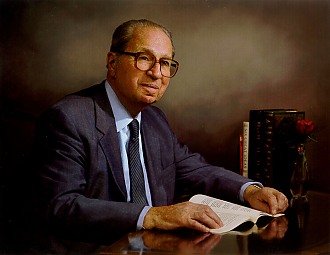
Dr. Mortimer J. Adler
In 1983, Dr. Adler, who had been a lifelong student of Plato, Aristotle and St. Thomas Aquinas (and a member of the American Catholic Philosophical Assiociation), formally converted to Christianity, specifically to the denomination of his wife, who was Episcopalian. Sixteen years later, in December, 1999 in San Mateo, California where he lived and shortly thereafter passed away (d. June 28th, 2001), he was formally received into the Catholic Church by His Excellency, Bishop Pierre DuMaine, of San Jose, CA, who was a long-time friend and admirer of Dr. Adler.
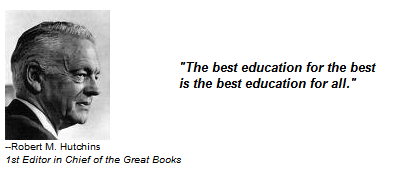 By Robert M. Hutchins
By Robert M. Hutchins
The tradition of the West is embodied in the Great Conversation that began in the dawn of history and that continues to the present day. Whatever the merits of other civilizations in other respects, no civilization is like that of the West in this respect. No other civilization can claim that its defining characteristic is a dialogue of this sort. No dialogue in any other civilization can compare with that of the West in the number of great works of the mind that have contributed to this dialogue. The goal toward which Western society moves is the Civilization of the Dialogue. The spirit of Western civilization is the spirit of inquiry. Its dominant element is the Logos. Nothing is to remain undiscussed. Everybody is to speak his mind. No proposition is to be left unexamined. The exchange of ideas is held to be the path to the realization of the potentialities of the race.
At a time when the West is most often represented by its friends as the source of that technology for which the whole world yearns and by its enemies as the fountainhead of selfishness and greed, it is worth remarking that, though both elements can be found in the great conversation, the Western ideal is not one or the other strand in the conversation, but the conversation itself. It would be and exaggeration to say that Western civilization means these books. The exaggeration would lie in the omission of the plastic arts and music, which have quite as important a part in Western civilization as the great productions included in this set. But to the extent to which books can present the idea of a civilization, the idea of Western civilization is here presented
 These books are the means of understanding our society and ourselves. They contain the great ideas that dominate us without our knowing it. There is no comparable repository of our tradition. To put an end to the spirit of inquiry that has characterized the West it is not necessary to burn the books. All we have to do is to leave them unread for a few generations. On the other hand, the revival of interest in these books from time to time throughout history has provided the West with new drive and creativeness. Great Books have salvaged, preserved, and transmitted the tradition on many occasions similar to our own.
These books are the means of understanding our society and ourselves. They contain the great ideas that dominate us without our knowing it. There is no comparable repository of our tradition. To put an end to the spirit of inquiry that has characterized the West it is not necessary to burn the books. All we have to do is to leave them unread for a few generations. On the other hand, the revival of interest in these books from time to time throughout history has provided the West with new drive and creativeness. Great Books have salvaged, preserved, and transmitted the tradition on many occasions similar to our own.
The books contain not merely the tradition, but also the great exponents of the tradition. Their writings are models of the fine and liberal arts. They hold before us what Whitehead called “‘the habitual vision of greatness.” These books have endured because men in every era have been lifted beyond themselves by the inspiration of their example, Sir Richard Livingstone said: “We are tied down, all our days and for the greater part of our days, to the commonplace. That is where contact with great thinkers, great literature helps. In their company we are still in the ordinary world, but it is the ordinary world transfigured and seen through the eyes of wisdom and genius. And some of their vision becomes our own.”
Until very recently these books have been central in education in the West. They were the principal instrument of liberal education, the education that men acquired as an end in itself, for no other purpose than that it would help them to be men, to lead human lives, and better lives than they would otherwise be able to lead.
The aim of liberal education is human excellence, both private and public (for man is a political animal). Its object is the excellence of man as man and man as citizen. It regards man as an end, not as a means; and it regards the ends of life, and not the means to it. For this reason it is the education of free men. Other types of education or training treat men as means to some other end, or are at best concerned with the means of life, with earning a living, and not with its ends.
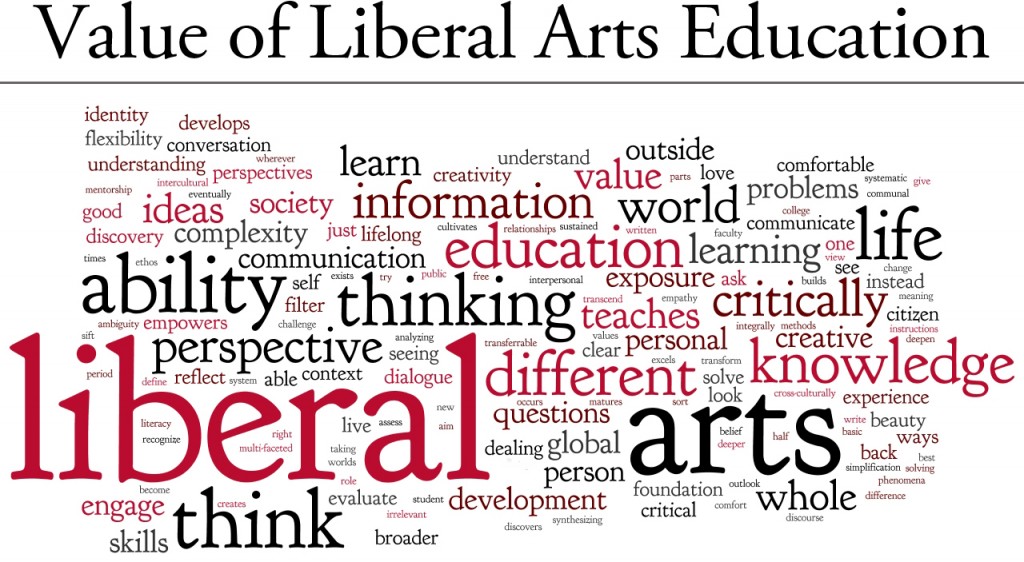 The substance of liberal education appears to consist in the recognition of basic problems, in knowledge of distinctions and interrelations in subject matter, and in the comprehension of ideas.
The substance of liberal education appears to consist in the recognition of basic problems, in knowledge of distinctions and interrelations in subject matter, and in the comprehension of ideas.
Liberal education seeks to clarify the basic problems and to understand the way in which one problem bears upon another. It strives for a grasp of the methods by which solutions can be reached and the formulation of standards for testing solutions proposed. The liberally educated man understands, for example, the relation between the problem of the immortality of the soul and the problem of the best form of government; he understands that the one problem cannot be solved by the same method as the other, and that the test that he will have to bring to bear upon solutions proposed differs from one problem to the other.
The liberally educated man understands, by understanding the distinctions and interrelations of the basic fields of subject matter, the differences and connections between poetry and history, science and philosophy, theoretical and practical science; he understands that the same methods cannot be applied in all these fields; he knows the methods appropriate to each.
The liberally educated man comprehends the ideas that are relevant to the basic problems and that operate in the basic fields of subject matter. He knows what is meant by soul. State, God, beauty, and by the other terms that are basic to the insights that these ideas, singly or in combination, provide concerning human experience.
The liberally educated man has a mind that can operate well in all fields. He may be a specialist in one field. But he can understand anything important that is said in any field and can see and use the light that it shed upon his own. The liberally educated man is at home in the world of ideas and in the world or practical affairs, too, because he understands the relation of the two. He may not be at home in the world of practical affairs in the sense of liking the life he finds about him; but he will be at home in that world in the sense that he understands it. He may even derive from his liberal education some conception of the difference between a bad world and a good one and some notion of the ways in which one might be turned onto the other.
 The method of liberal education is the liberal arts, and the result of liberal education is discipline in those arts. The liberal artist learns to read, write, speak, listen, understand, and think. He learns to reckon, measure, and manipulate matter, quantity, and motion in order to predict, produce, and exchange. As we live in the tradition, whether we know it or not, so we are all liberal artists, whether we know it or not. We all practice the liberal arts, well or badly, all the time every day. As we should understand the tradition as well as we can in order to understand ourselves, so we should be as good liberal artists as we can in order to become as fully human as we can.
The method of liberal education is the liberal arts, and the result of liberal education is discipline in those arts. The liberal artist learns to read, write, speak, listen, understand, and think. He learns to reckon, measure, and manipulate matter, quantity, and motion in order to predict, produce, and exchange. As we live in the tradition, whether we know it or not, so we are all liberal artists, whether we know it or not. We all practice the liberal arts, well or badly, all the time every day. As we should understand the tradition as well as we can in order to understand ourselves, so we should be as good liberal artists as we can in order to become as fully human as we can.
The liberal arts are not merely indispensable; they are unavoidable, Nobody can decide for himself whether he is going to be a human being. The only question open to him is whether he will be an ignorant, undeveloped one or one who has sought to reach the highest point he is capable of attaining. The question, in short, is whether he will be a poor liberal artist or a good one.
The tradition of the West in education is the tradition of the liberal arts. Until very recently nobody took seriously the suggestion that there could be any other ideal. The educational ideas of John Locke, for example, which were directed to the preparation of the pupil to fit conveniently into the social and economic environment in which he found himself, made no impression on Locke’s contemporaries. And so it will be found that other voices raised in criticism of liberal education fell upon deaf ears until about a half-century ago.
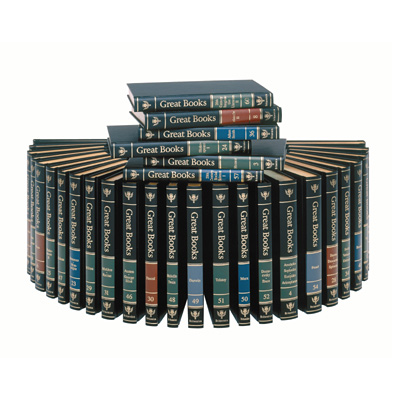 This Western devotion to the liberal arts and liberal education must have been largely responsible for the emergence of democracy as an ideal. The democratic ideal is equal opportunity for full human development, and, since the liberal arts are the basic means of such development, devotion to democracy naturally results from devotion to them. On the other hand, if acquisition of the liberal arts is an intrinsic part of human dignity, then the democratic ideal demands that we should strive to see to it that all have the opportunity to attain to the fullest measure of the liberal arts that is possible to each.
This Western devotion to the liberal arts and liberal education must have been largely responsible for the emergence of democracy as an ideal. The democratic ideal is equal opportunity for full human development, and, since the liberal arts are the basic means of such development, devotion to democracy naturally results from devotion to them. On the other hand, if acquisition of the liberal arts is an intrinsic part of human dignity, then the democratic ideal demands that we should strive to see to it that all have the opportunity to attain to the fullest measure of the liberal arts that is possible to each.
The present crisis in the world has been precipitated by the vision of the range of practical and productive art offered by the West. All over the world men are on the move, expressing their determination to share in the technology in which the West has excelled. This movement is one of the most spectacular in history, and everybody is agreed upon one thing about it: we do not know how to deal with it. It would be tragic if in our preoccupation with the crisis we failed to hold up as a thing of value for all the world, even as that which might show us a way in which to deal with the crisis, our vision of the best that the West has to offer. That vision is the range of the liberal arts and liberal education. Our determination about the distribution of the fullest measure of these arts and this education will measure our loyalty to the best in our own past and our total service to the future of the world.
The great books were written by the greatest liberal artists. They exhibit the range of the liberal arts. The authors were also the greatest teachers. They taught one another. They taught all previous generations, up to a few years ago. The question is whether they can teach us.
“To be always seeking after the useful,” said Aristotle, “does not become free and exalted souls.”
In the spring of this year, education in our country was set into chaos. Teachers and administrators scrambled to find ways of delivering instruction in a remote setting. The fall rolled around, and the educational process had been revolutionized. With less class time for students, many teachers have pared down on their class material to “just the essentials.”
This, then, would be a good time to question what those essentials are. When it comes to the education of our children, what is most necessary? What is the real purpose and goal of education? It is always necessary to keep the goal of any activity in mind, especially an activity as important as education, but it is even more necessary in a time of upheaval.
Since I am a student of philosophy, I like to bother my students with deep questions that they don’t want to think about (some of these conversations are recorded in my book Philosophy Fridays). One of those questions, which I bring up a few times throughout the year, is this: why go to school? Students answer with the typical replies: to get good grades, to get into a good college, to get a good job, to make money, and so on. Basically, school is useful for getting along in life.
This is known as the utilitarian view of education, and they have been well-schooled in it. Students learn skills that will prepare them to fulfill some useful function in society. The job of a school is to fashion a gear for the machine of the economy.
One of the highlights of this year for me has been moderating Great Books discussions for the Angelicum Academy, and at the start of our first discussion (on Hesiod and Aeschylus, if you are interested), Steve Bertucci, the program’s director, offered a view of education that differs vastly from the technical view of our current society: the goal of education is to learn to love the things we ought to love. He cited Socrates.
Desmond Lee translates a passage of the Republic (Book III, 403c) this way: “The object of education is to teach us to love what is beautiful.” We ought to love what is truly beautiful, and we ought to love most what is most beautiful. Far from learning skills for work, education should be primarily about love and beauty.
Christopher Scott Sevier, in his book Aquinas and Beauty, comments, “What we love says a great deal about our character.” Education, then, is a formation of our character so that the beauty of what is beautiful can find a home in the beauty of a virtuous soul. Education is “training in virtue.” The development of right love is the development of the person as a whole. Well-ordered affection takes time and effort and ought to be the main thing in education.
Aristotle warned us, more than 2000 years ago, against the utilitarian view of education: “To be always seeking after the useful does not become free and exalted souls.” Who would not want the children of their world to become free and exalted in soul?
Again, Aristotle writes, “There is a sort of education in which parents should train their sons, not as being useful or necessary, but because it is liberal or noble.” The utilitarian view of education aims at developing useful humans. The educational view of Plato and Aristotle (and others) aims at developing excellent humans. Good skills are incidental to the human person. Being a good human is essential to the human person. As beings with free will, we participate in our own becoming. What we become depends on what we think, say and do.
One of the many quotes on my classroom wall reads: “One of the great problems of our time is that many are schooled, but few are educated.” That was written by St. Thomas More in the 16th century. I wonder what he would have to say about our schools now.
Epictetus said, “Only the educated are free.” For all our schooling, we are not free and exalted in soul. Only the virtuous are free. Only those who can love what they ought to love are free. Only those with well-ordered affection are free. Only those who can be pierced by what is truly beautiful are free, because Beauty is Truth, and “The truth will set you free.”
If education is being re-invented, it ought to be founded on solid principles. The essential thing about education is its purpose, and an education that loses its true purpose may turn out to be no education at all.
Matt D’Antuono is a physics teacher in New Jersey, where he lives with his wife and eight children. He holds bachelor’s degrees in physics and philosophy, a master’s degree in special education, and is working on a master’s degree in philosophy at Holy Apostles in Cromwell, Connecticut. He returned to the Catholic Church in 2008. He is the author of A Fool’s Errand: A Brief, Informal Introduction to Philosophy for Young Catholics, The Wiseguy and the Fool and Philosophy Fridays. On YouTube you can find him at DonecRequiescat and his family at MisterD418.
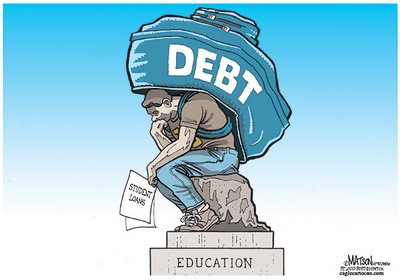 A Broader View
A Broader View
SUMMARY:
American Catholic families increasingly cannot afford Catholic higher education.
Private college, including room and board, cost an avg. of $1,187 per credit hour.
Great Books Program credits cost only $250 per hour for the first 48 hours of college credit;
The remaining Great Books Program college credits cost from as little as $250, depending upon the participating college selected.
The Great Books Program helps make Catholic higher education affordable.
Most Catholic parents hope to avoid sending their children to public, secular colleges with the attendant dangers to faith and morals so prevalent there. They hope to send their children to private four-year colleges for a sound, Catholic education. But that is increasingly unaffordable for families.
 College tuition is typically based on a per-credit-hour basis, plus some minor fees (e.g., application fee). A credit hour is an “hour” (50 minutes) of class per week, for 14-16 weeks (a semester). The standard minimum number of hours for a bachelor’s degree in most US colleges and universities is completion of 120 hours, typically completed at the rate of 15 per semester, 30 per year for four years. Many foreign colleges and some US ones have 90 credit hour bachelor’s degrees, which typically require three years to complete. The cost-per-credit-hour therefore becomes central to calculating college tuition at most colleges, though a minority of colleges simply have a semester charge for a fixed curriculum.
College tuition is typically based on a per-credit-hour basis, plus some minor fees (e.g., application fee). A credit hour is an “hour” (50 minutes) of class per week, for 14-16 weeks (a semester). The standard minimum number of hours for a bachelor’s degree in most US colleges and universities is completion of 120 hours, typically completed at the rate of 15 per semester, 30 per year for four years. Many foreign colleges and some US ones have 90 credit hour bachelor’s degrees, which typically require three years to complete. The cost-per-credit-hour therefore becomes central to calculating college tuition at most colleges, though a minority of colleges simply have a semester charge for a fixed curriculum.
$ 142,544 – AVG. FOUR YEAR COLLEGE COSTS. 2009-2010 tuition and fee costs for private, four-year colleges increased on average 4.4% or $1,096 per year from the prior year to a whopping $26,273 per year (up 47% since 2002 when it was $18,596) or over $105,092 for four years; at the same time average college room and board costs climbed 4.2% or $377 per year to $ 9,363. That totals to an average of over $35,636 per year or $142,544 for a four-year degree (Ivy League colleges hover about $50,000 per year – $200,00 for four years
$ 1,187 PER CREDIT HOUR. Calculating the same average on a per hour basis, using the standard minimum of 120 hours for a bachelor’s degree, with room and board added in, the total cost is $1,187 per credit hour ($1,666 for the higher end colleges).
$ 250 PER CREDIT HOUR IN Great Books Program. The Great Books Program cost per credit hour is $250 for the first 48 hours ($12,000 total) of the program. The remaining hours vary from $250 (online courses) up to $600 (c. $912 including room and board, at Benedictine College).
Great Books Program BACHELOR’S DEGREES FROM $28,088. Eight bachelor’s degrees in the Great Books Program can be obtained for under $32,000.[iv] Another 31 Great Books Program bachelor’s degrees may be completed at residential colleges for a range from $28,088 (Campion Australia, including tuition, fees, room and board[v]), to $93,722 (Benedictine College, including tuition, fees, room and board) [iii] utilizing three annual 5% reenrollment discounts with the Angelicum Great Books Program), and absent any scholarships.
TEXTBOOKS REACH $1,000 PER YEAR. Add another $4,000 to tuition and fees at most colleges since the typical college student also pays another $1,000 per year on textbooks.[vi] Here are some pricey examples:
Acta Philosophorum The First Journal of Philosophy: $1,450
Encyclopedia of International Media and Communications: $1,215
Management Science An Anthology: $850 
History of Early Film: $740
Biostatistical Genetics and Genetic Epidemiology: $665
Companion Encyclopedia of Psychology: $600
Feminism and Politics: $600
Concepts and Design of Chemical Reactors: $593
Advanced Semiconductor and Organic Nano-Techniques: $570
Ethics in Business and Economics: $550
Great Books Program BOOKS ARE UNDER $300 PER YEAR. By contrast, the Ignatius Critical Edition books used in the Great Books Program Angelicum Great Books Program cost approximately $11-13 each or roughly $300 per year. Our Great Books Study Guides are presently included in the price of the tuition. Since Ignatius does not have all of the books used in their Critical Editions yet, the current cost is under $300 per year (in fact, 80% of the four-years of readings are contained in Britannica’s Great Books of the Western World, a set which can be obtained new for $989 or used for much less).
CAN THE AVERAGE AMERICAN AFFORD PRIVATE COLLEGE ANY LONGER?
 While college costs have continued to climb through the roof, average hourly earnings of Americans ($18.98 per hour) have declined in purchasing power to about ½ what they were in the 1970s, after adjusting for inflation. From January 2007 to 2009, 5.1 million jobs were lost; 13.7 million people were out of work and 32.2 million people were on welfare (food stamps). Many retirement plans are all but worthless. $9.7 trillion was spent on bank bailouts for a very few of the largest banks. An astonishing number of homes – 19 million – stand vacant. U.S. debt is approximately $12.3 trillion + $6.3 trillion Fannie Mae/Freddie Mac debt assumed by the US government = $ 18.6 trillion dollars. This vast sum does not include the federal government’s un-funded contingent liabilities such as Social Security/Medicare/Medicaid estimated at $107 trillion. State and local governments owe another $2.4 trillion. All of this will, of course, have to be paid on the backs of the already overburdened US taxpayer. The American middle class is now an endangered species.
While college costs have continued to climb through the roof, average hourly earnings of Americans ($18.98 per hour) have declined in purchasing power to about ½ what they were in the 1970s, after adjusting for inflation. From January 2007 to 2009, 5.1 million jobs were lost; 13.7 million people were out of work and 32.2 million people were on welfare (food stamps). Many retirement plans are all but worthless. $9.7 trillion was spent on bank bailouts for a very few of the largest banks. An astonishing number of homes – 19 million – stand vacant. U.S. debt is approximately $12.3 trillion + $6.3 trillion Fannie Mae/Freddie Mac debt assumed by the US government = $ 18.6 trillion dollars. This vast sum does not include the federal government’s un-funded contingent liabilities such as Social Security/Medicare/Medicaid estimated at $107 trillion. State and local governments owe another $2.4 trillion. All of this will, of course, have to be paid on the backs of the already overburdened US taxpayer. The American middle class is now an endangered species.
During the 1970s it was possible for American college students to pay their own tuition by working part time, without student loans or any help from their parents. Besides paying their own tuition, many students in the 1970s could also afford their own car and apartment. Today, college students have to get deeply into debt and have their parents help pay their tuition; students can barely afford to pay for food on their own.
One result is that parents and students increasing hope for scholarships, grants and especially student loans to make that more affordable. Beside these being uncertain and hence difficult to use in planning, there is a serious downside to student loans – sometimes crushing debt.
Consumer debt in the US stands at nearly $2.5 trillion dollars – and based on the latest Census statistics, that works out to be nearly $8,100 in debt for every man, woman and child that lives here in the US. We’re talking about consumer credit – which does not include debt secured by real estate. 36% is credit card debt (credit card delinquencies were at the third highest level on record);[vii] 64% is derived from loans that are not revolving in nature. This type of debt would include car loans and student loans. So if you’re thinking that number has mortgage debt in it, it doesn’t. The typical homeowner spends around 17% of their disposable income just to own their homes and cars. Renters outpace homeowners by over 8% and spend nearly 25% of their income on these same types of debts. Nearly one in every 35 households in the United States filed for bankruptcy in 2007 alone.
The Project on Student Debt, a research and advocacy organization in Oakland, Calif., used federal data to estimate that 206,000 people graduated from college with more than $40,000 in student loan debt – that’s a ninefold increase over the number of people in 1996, using 2008 dollars. Furthermore, on top of student loans most students have credit card debt they amassed from paying living expenses – $3,200 on average.
One survey of college graduates revealed an overwhelming number of respondents that were sidetracked from graduate or post-graduate study due primarily to existing student loan debt.[viii] Does this mean that if we were not faced with the mountain of student loan bills that we would be a more well-educated society? Of course, with many more well-educated Catholics.
The university and college tuition loan-finance system can now fairly be described as a continuous debt-generating apparatus. Students enter into college or university under the premise that once they receive their degree they will find high-paying jobs, enabling them not only to pay back their tuition debt along with other fees but be able, at the same time, to live a comfortable existence. Most recent graduates will tell you that nothing could be further from the truth.
Many entry-level wages for formerly “high-paying,” post-graduate positions were slashed – if those jobs did not disappear altogether. After their graduation, and with the onset of severe recession, more and more students have found themselves having to accept low-paying jobs in places like coffee shops or the retail industry just to cover their daily expenses.
For example, Cortney Munna, a 26-year-old graduate of New York University, has nearly $100,000 in student loan debt from her four years in college. Like many middle-class families, Cortney and her mother began the college selection process with a grim determination. They would do whatever they could to get Cortney into the best possible college, and they maintained a blind faith that the investment would be worth it.
Today, however, Ms. Munna, a 26-year-old graduate of New York University has nearly $100,000 in student loan debt from her four years in college, and affording the full monthly payments would be a struggle. Universities like N.Y.U. enrolled students without asking many questions about whether they could afford a $50,000 annual tuition bill. Then the colleges introduced the students to lenders who underwrote big loans without any idea of what the students might earn someday — just like the mortgage lenders who didn’t ask borrowers to verify their incomes.
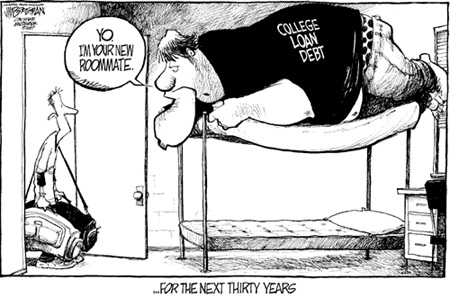 Meanwhile Ms. Munna does not want to walk away from her loans in the same way many mortgage holders are. It would be difficult in any event because federal bankruptcy law makes it nearly impossible to discharge student loan debt. It is utterly depressing that there are so many people like her facing decades of payments, limited capacity to buy a home and a debt burden that can repel potential spouses.
Meanwhile Ms. Munna does not want to walk away from her loans in the same way many mortgage holders are. It would be difficult in any event because federal bankruptcy law makes it nearly impossible to discharge student loan debt. It is utterly depressing that there are so many people like her facing decades of payments, limited capacity to buy a home and a debt burden that can repel potential spouses.
How could her mother have let her run up that debt? “All I could see was college, and a good college and how proud I was of her,” her mother said. “All we needed to do was get this education and get the good job. This is the thing that eats away at me, the naïveté on my part.”
Cortney recently received a raise and now makes $22 an hour working for a photographer. It’s the highest salary she’s earned since graduating with an interdisciplinary degree in religious and women’s studies. After taxes, she takes home about $2,300 a month. Rent runs $750, and the full monthly payments on her student loans would be about $700.
She may finally be earning enough to barely scrape by while still making the payments for the first time since she graduated, at least until interest rates rise and the payments on her loans with variable rates spiral up. “I don’t want to spend the rest of my life slaving away to pay for an education I got for four years and would happily give it back,” she said. “It feels wrong to me.” [ix]
WILL THE OBAMA STUDENT LOAN REFORMS MAKE A DIFFERENCE?
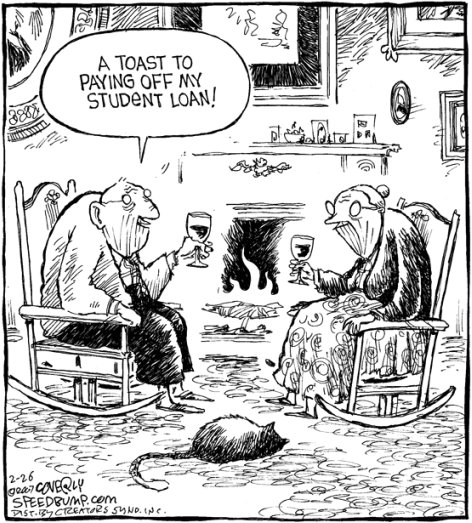 In July, 2010 the US Government will take over a majority of issued student loans stemming from private banks and corporate-loan companies. Newly signed loans will have a capped 3.4 percent interest rate. The loans that already exist will not be affected by this cap, which means millions of students will still have to pay back their current loans with interest rates that can easily reach 10 percent or more. New repayment terms will come into existence for loans signed only after 2014. The current repayment cap of 15 percent of disposable income will be lowered to 10 percent. Furthermore, the government can forgive some borrowers’ debts after 20 years whereas now lenders can forgive student-loan debt only after 25 years. Public servants, i.e., nurses, soldiers, and teachers, could see more relief. Their debt can be forgiven after only 10 years, and they can get assistance of up to $4,000 for tuition. In addition, a portion of their loans can be forgiven if they make less than $65,000 per annum.
In July, 2010 the US Government will take over a majority of issued student loans stemming from private banks and corporate-loan companies. Newly signed loans will have a capped 3.4 percent interest rate. The loans that already exist will not be affected by this cap, which means millions of students will still have to pay back their current loans with interest rates that can easily reach 10 percent or more. New repayment terms will come into existence for loans signed only after 2014. The current repayment cap of 15 percent of disposable income will be lowered to 10 percent. Furthermore, the government can forgive some borrowers’ debts after 20 years whereas now lenders can forgive student-loan debt only after 25 years. Public servants, i.e., nurses, soldiers, and teachers, could see more relief. Their debt can be forgiven after only 10 years, and they can get assistance of up to $4,000 for tuition. In addition, a portion of their loans can be forgiven if they make less than $65,000 per annum.
Another aspect of the student-loan reform is the increasing of Pell Grants for lower-income students. As part of last year’s stimulus package, they were raised, but they would be lowered again once the stimulus money ran out. The amount of Pell Grants is slated to increase approximately $400 to $5,975 by 2017, correlated to fluctuations in the indices of consumer prices.
These changes are very vague and do not really address the central problems most students find themselves in. The estimation of the Consumer Price Index in 2017, for example, is an example of one of the vague features of the bill. Moreover, millions of students remain saddled with incredible amounts of debt. Most of the measures contained in the bill do not consider general inflation, and none of them considers tuition inflation.
All across the country colleges and universities are raising tuition and other fees – year on year. The minuscule increases in the issue of Pell Grants during this time, for example, will be outpaced, unable to keep pace with the massive increases in tuition. Moreover, with the availability of subsidized loans issuing directly from the government, students could potentially end up paying more for tuition, as many universities and colleges would not or could not allow such an opportunity to pass them by of raising tuition.
Students therefore, even after the implementation of Obama’s student-loan “reform” program – have the potential of amassing massive amounts of debt; and this debt gets harder and harder to pay back with the disappearance of high-paying jobs along with jobs in general. Students could realistically end up paying undergraduate and or post-graduate debt decades after achieving a degree. If a student does not have a job or have one that barely allows one to pay rent, food and gas, he or she can find it next to impossible to pay back any loans – no matter the repayment terms. This cannot go on. The system of trading debt-bondage for an education needs serious reform. The government is not the answer.
THOUGH INCREASINGLY UNAFFORDABLE, COLLEGE EDUCATION REMAINS VALUABLE
The above graph shows the median household income in accordance with the householder’s educational attainment – the correlation is very high and significant.
Apart from the critical i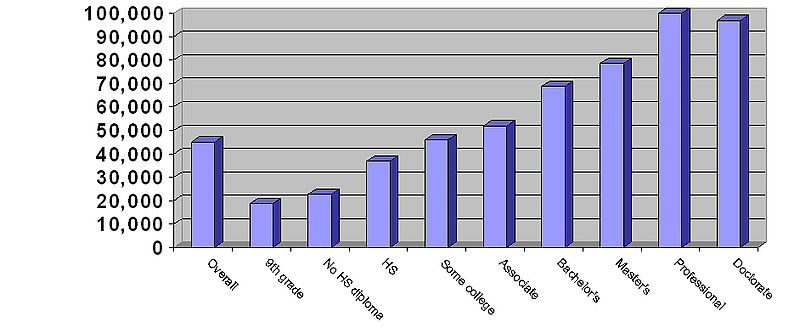 mportance of liberal education as a good in itself, we are left with the apparent dilemma that while a good college education results in dramatically increased income, it is often not worth the level of student loan debt students must incur to obtain it.
mportance of liberal education as a good in itself, we are left with the apparent dilemma that while a good college education results in dramatically increased income, it is often not worth the level of student loan debt students must incur to obtain it.
This explains one of the principal goals and benefits of the Good Books Program – to reduce the cost of Catholic higher education thereby making it available to more Catholic families and students, and to others, who either cannot afford it or who wish to avoid the crushing debt that increasingly accompanies it.
[i] Top 10 US News & World Report, Aug 2009 [ii] http://colleges.usnews.rankingsandreviews.com/college/liberal-arts-search [iii] 2009-10 College Prices (College Board) [iv] The 2009-10 academic year figures were slightly lower. Due to price increases at some participating colleges the figure is now slightly higher. However, taking advantage of tuition discounts can still keep the cost below $29,000, or even less for families. Prices subject to exchange rates fluctuations and other changes without notice. [v] Room and board costs at Campion College Australia range from $100 AUD to $325 AUD per week for 17 weeks. In US$ that comes to $84-$273 per week at current rates, or $ 1,428-$4,641 per semester. The figure above uses the lower sum. [vi]12 Most Expensive College Textbooks in America, By Lynn O’Shaughnessy , May 10, 2010 [vii] Consumer Debt Statistics by Erin Peterson, Bankrate.com [viii] Project on Student Debt, a research and advocacy organization in Oakland, California Your Money, by Ron Lieber who writes the Your Money column, which appears in The NY Times on Saturdays.
Our Great Books students were very fortunate this past semester (2018) to have Fr. Fessio as a moderator for some of their classes!
“This was a very informative and inspiring
[Angelicum Great Books class on Brothers Karamotsov]. I hope you keep doing this kind of work. It is going to form you people to be very solid citizens of both the earthly and heavenly kingdoms. God bless you all.” – Fr. Joseph Fessio, SJ, Th.D.“This particular [Angelicum Great Books class on Leviathan] session has been brilliant. It should be recorded and used in advertising for the program. The comments are excellent, well articulated – I’m sorry to praise you; I don’t want you people to lose humility. Well, you won’t lose humility if you read great books because you’ll realize how small you are in comparison to these giants we are reading.”- Fr. Joseph Fessio, SJ, Th.D.
Overview of the Great Books Program
The Great Books Program consists of eight semesters (four years) of online classes meeting 2 hours per week, September-May, discussing the reading from one of the great classics of Western civilization – Great Books – done that week. Students do the weekly Great Books reading and meet for a two-hour weekly discussion with two highly experienced moderators very familiar with the readings, and up to 22 students online (average is about 18), including some from various States and often from various countries. Two 900-1000 word (or 1800-2000 in the college tracks) essays are required each semester. Students have a month to do each, and may redo to improve them – as many times as they wish – for a higher grade. Students take an online oral exam online at the end of each semester.
The classes are conducted in a conversational, or Socratic, format. Our method of teaching by conversationally discussing questions and answers in a spirit of mutual inquiry and discovery dates back to Socrates and is at the heart of the Great Books and classical traditions. It leads students to develop and practice the liberal arts of listening, speaking, reading and writing as well as the habits of reflective, critical thinking. In this environment students begin to develop their thoughts and insights with care and confidence and learn how to express those ideas in the naturally delightful and liberating experience of genuine learning. In this way students gain understanding of their own natures and the nature of the world in which we all live. This makes for a better, examined and thoughtful life, a point on which all the sages who wrote the great books agree. Visitors are welcome to attend the classes to experience them. We have some audio samples of the classes posted online.
There are two modes to enroll and be in the classes: either for high-school-level credit, or for college-level credit (which also includes high school credit). We refer to these two modes of participation and enrollment as the high-school-track and the college-track. College track students may earn up to 60 college credits, which is typically ½ of a bachelor’s degree, where the credits are received for transfer.
The college-track may also be taken as part of the Associate’s degree (or “AA”) track, in which students also take five online courses from Holy Apostles College during their 11th and/or 12th grade years. Combined with the Great Books courses, this enables them to earn 60 college credits by the completion of their 12th grade, and an accredited Associate’s degree (in the Liberal Arts) from Holy Apostles College. If they take our four Theology Online courses they may earn up to 75 college credits (of the 120 needed for a Bachelor’s degree), and have the option of receiving an Associate’s degree in Theology, again, by the conclusion of 12th grade. If this is of interest please visit the “Degree Programs” tab.
With 75 credits earned, only another 45 are needed for an accredited bachelor’s degree. These may be earned in as little as three semesters-one year (taking 15 credits each in the Summer, Fall, and Spring terms at Holy Apostles, on-campus or online). Full details are available under the Associate’s degree FAQ tab.
In addition to the study described above, college-track students must submit weekly, written answers – mostly of the short answer-type (a few sentences to a paragraph or two) – to the Great Books Study Guide questions which accompany each reading. There are 10-20 such questions each week.
Two 1800-2000 word essays per semester are required of college track students. These are graded for content as well as for English language arts, including grammar, syntax, spelling, vocabulary and style. These essays together constitute ten percent (25%) of the semester grade. All students take an oral exam online at the end of each semester. The weekly grading, the coordination with colleges, more involved assessment and so on, make the college-track tuition considerably more than the high-school-track. Students in the classes are generally unaware which students are doing it on the high-school-track, and which on the college-track, as it makes no difference in the online classes where they come into contact.
Students must be at least 14 years of age (or 9th grade) to enroll in the Great Books Program. There is no upper age limit. We often have college students and adults in classes, though the great majority begin at age 14 or so. The experienced moderators and the magnificent quality of the books read and discussed –which Dr. Adler called the “backbone of a liberal education – invariably elevate the conversation and enlighten the intellects of participants. The specific readings selected are arranged chronologically beginning around Homer’s Illiad about ancient Greece (1st year), and continue through ancient Rome (2nd year), the Middle Ages (3rd year), and conclude in our time (Modern or 4th year). This is typical of Great Books programs at colleges and universities.
We have been doing this since our founding in 2000 A.D. We have had thousands of students, in about 40 countries, many of whom have graduated and attend or graduated from numerous colleges and universities. Our program was successfully reviewed by the American Council on Education (ACE) which recommended it for 48 hours of college level credit. The American Council on Education’s College Credit Recommendation Service (ACE CREDIT) twice evaluated and recommended college credit for 8 courses (totaling 48 credit hours – 6 per semester) of our Great Books Program. The American Council on Education, the major coordinating body for all the nation’s higher education institutions, seeks to provide leadership and a unifying voice on key higher education issues and to influence public policy through advocacy, research, and program initiatives. For more than 30 years, colleges and universities have trusted ACE CREDIT to provide reliable course equivalency information to facilitate their decisions to award academic credit.
“Mr. B” (as he is known by our students), one of our Great Books Moderators
The Great Books Program is a purely distance education program with only minimal technical support needed to assist its professors who moderate our weekly, online, live classes (i.e., not recorded, no delayed “chat” rooms) from their homes or offices around the country. This dramatically reduces costs thus enabling more students to attend and complete these high school/college level Great Books courses who would otherwise not be able to do so. While we have video capability, we rarely use it, in preference for the much less-distracting live-audio only, with various images posted (such as photos, maps, verse, texts, etc.).
The Great Books Program students do not need to be enrolled in the Angelicum Academy, nor to have come from the Angelicum homeschool program, nor to have had any of the 3-8th grade Socratic classes. The Great Books Program is operated independently of these, though they were designed to dovetail. Most of our students have not come from the Angelicum Academy – they come from many programs, from charter schools, from public or private schools, and from homes not using any formal homeschool program. Over the years some schools have adopted all or parts of our curriculum. The curriculum for the Angelicum Academy homeschool program orients students towards the Great Books program, in various ways, and we obviously recommend it, but it is not a necessary prerequisite for the study of the Great Books.
Our new, online, Greats Honors Program for students in the 9th-12th grades, is a perfect complement to the Great Books Program, and in fact envisions the same students taking both the Great Books courses and the Great Courses together in one, integrated curriculum-The Greats Honors Program- and was designed for that very purpose: to provide the very finest, online educational experience possible.
Dr. Redpath and Mr. Bertucci in Poland
Many years ago – from the Middle Ages to modern times – the Bachelor of Arts (BA) degree signified completion of the secondary level of education (following the elementary or primary level) and so readiness to enter into the third level of formal education – the university, for specialization in one’s chosen field. With that background in mind, Dr. Mortimer J. Adler wrote:
“If I had any hope that in the foreseeable future, the educational system of this country could be so radically transformed that the basic liberal training would be adequately accomplished in the secondary [i.e., high] schools and that the Bachelor of Arts degree would then be awarded at the termination of such schooling, I would gladly recommend that the college be relieved of any further responsibility for training in the liberal arts… if we are going to have general human schooling in this country, it has to be accomplished in the first twelve years of compulsory schooling…it would be appropriate to award a bachelor of arts degree at the completion of such basic schooling. Doing so would return that degree to its original educational significance as certifying competence in the liberal arts, which are the arts or skills of learning in all fields of subject matter.” – Jacques MaritainJacques Maritain
Philosopher Jacques Maritain held virtually the identical view as Dr. Adler on this matter: “I advance the opinion, incidentally, that, in the general educational scheme, it would be advantageous to hurry the four years of college, so that the period of undergraduate studies would extend from sixteen to nineteen. The BA would be awarded at the end of the college years [at 19 years of age], as crowning the humanities…” (Education at the Crossroads)
Most of the Great Books can be downloaded free to a Kindle!
For example, in colonial America, before entering school at the age of fourteen or fifteen, students were expected to be able to speak Latin, and in college they were fined for not speaking in Latin, except during recreation. Latin was the language of most of their textbooks and lectures. The New Testament Greek was required for admission, and in Greek they also studied Homer and Longinus. In Latin the chief authors were Cicero, Vergil, and Horace. A continued interest in the classics was usual. “Every accomplished gentleman,” says Wertenbaker, “was supposed to know his Homer and his Ovid, and in conversation was put to shame if he failed to recognize a quotation from either.” Self-made men, like Benjamin Franklin, without the benefit of college, derived more from the ancient world than one would expect, but the more typical Founding Fathers meditated long and deeply on the ancient patterns of democracy and republics, and Jefferson was only expressing a frequent view of his time when he said of ancient literature: “The Greeks and Romans have left us the present models which exist of fine composition whether we examine them as works of reason, or style, or fancy… To read the Latin and Greek authors in the original is a sublime luxury.” The history, philosophy, and literature of the ancients did not seem remote or antiquated, but intimately present because permanently enlightening. -Image of America, Prof. Norman Foerster (University of Notre Dame Press, 1957)
In a 1970 appearance on the TV show Firing Line, hosted by William F. Buckley, Jr, Dr. Adler made the same point that liberal education, the backbone of which is study of the Great Books (not student-selected electives), should be completed by the end of secondary (high) school:
Dr. Mortimer J. Adler
Editor- in-Chief of Encyclopedia Britannica and the Great Books of the Western WorldI think the curriculum for liberal studies should be completely fixed. There should be no electives at all. I do not think the student is in any position to make choices about what he should study. I do not think his interests make any difference. They are all human beings; they are all going to become citizens; they are all going to have lots of free time. I think electives – the choice of specialization – should come after the liberal arts degree. I think the liberal arts degree is given four years too late. I would take American schooling and cut it down , and make it European in this sense: six years of elementary schooling; six years of secondary (lycee, gymnasium – high school); the collegiate (i.e., the BA [Bachelor of Arts]) degree coming at the end of that [i.e., at the conclusion of secondary education – 12th grade in the US]…I might extend that by taking [into account] the differences in the population: I might have the very brightest twelve years [i.e., through 12th grade] ; for the next level thirteen years; and the last, fourteen years, but not more than fourteen.”
Twenty years later, in 1990 Adler reaffirmed his view that the Great Books – the “ backbone of liberal education” as Adler called them – should be studied in the high school years, before age eighteen: “As far as the United States is concerned, the reorganization of the educational system would make it possible for the system to make its contribution to the liberal education of the young by the time they reached the age of eighteen…The tremendous waste of time in the American educational system must result in part from the fact that there is so much time to waste.” (The Great Conversation by Dr. Mortimer J. Adler; 2nd Ed., 1990, p.55; Encyclopaedia Britannica, Inc., Chicago)
Adler wrote in his autobiography, although younger than the College students, “the high school students did just as well [in the University of Chicago Great Books Program]; in fact, having had less schooling, they were less inhibited in discussion.” I’d say that it was not that we’d had less schooling but that we’d had U-High (high school at the U. of Chicago-run University high school – in other words they were prepared) schooling, which encouraged independent questioning and expression. -George McElroy, (BA’38, MA’39, graduated from U-High in 1934)
Ten years later, taking Dr. Adler’s words and personal encouragement to heart, in 2000 AD we developed The Great Books Program for students high school and college age and up. Much like the AP science courses for which high school students can earn college credits for completing courses of college level content and rigor, The Great Books Program allows willing students to gain a broad, liberal (i.e. from liber or libertas – liberty, or freeing from ignorance) education in the humanities through the study of the great books while in high school or college, via distance education, for college credit.
“Reading the Great Books had done more for my mind than all the rest of the academic pursuits…it is the best education for the faculty as well as for the students; the use of original texts is an antidote for survey courses and fifth-rate textbooks; and it constitutes by itself, if properly conducted, the backbone of a liberal education.” – Dr. Mortimer J. Adler
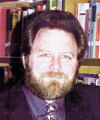 What is the Socratic Method? by Norris Archer Harrington
What is the Socratic Method? by Norris Archer Harrington
Never before has there been such a great opportunity for parents seeking the best education for their children.” – Norris Archer Harrington
In recent years there has been an increased interest in the great books approach to education. Nowhere is this approach more realized than at schools such as St. John’s College and Thomas Aquinas College. As four year, great books programs, both of these schools focus exclusively on the original texts of the greatest writings in the history of the Western world. After reading these works, students and tutors engage in Socratic discussion groups so as to bring out the rich meaning to be found there.
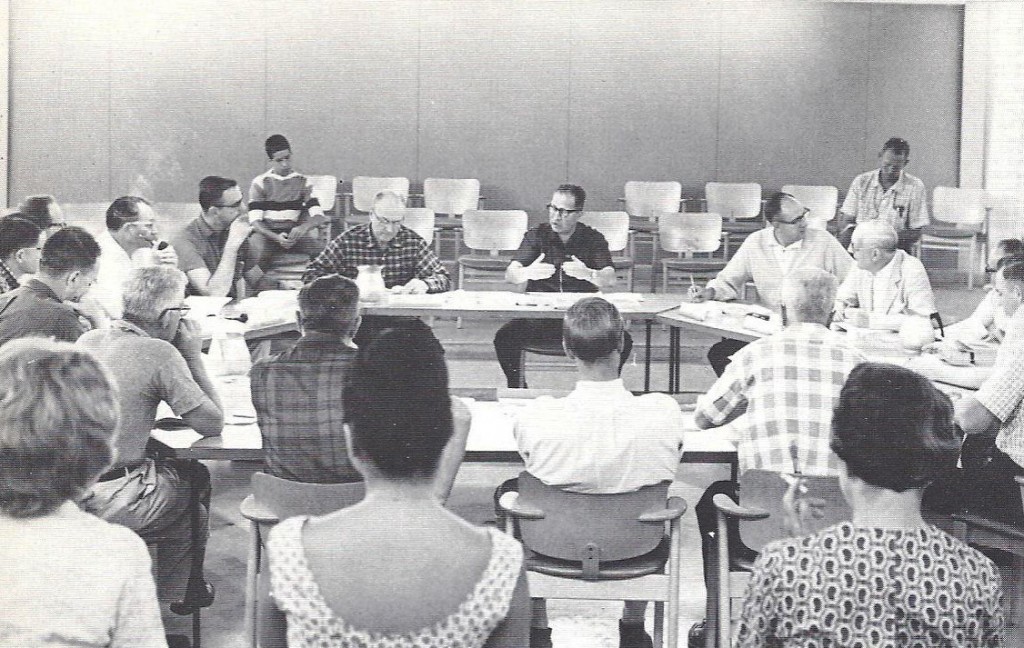
Adler conducting a Socratic seminar in Aspen.
Undoubtedly, there are many parents who desire for their children the traditional and classical education afforded by a great books approach who yet find themselves asking, “Just what is the Socratic Method, why should we use it, how does it work?” It is illustrative that by asking these very questions in order to understand the method, one actually initiates the method itself. To answer requires a brief discussion of Socrates, the Greek philosopher from whom the method takes its name. It is interesting to note that in any listing of great books, Socrates is never one of the authors listed. This is because Socrates never wrote a book. All of the written dialogues of Socrates we have today were written by his student, Plato.
Socrates, despite the contrary claims of his contemporaries, insisted many times that he was not an authority regarding anything. Almost without exception, he held that he was simply trying to understand the essence of whatever issue or question was at that time being discussed. When a seemingly wise man would make a bold proclamation regarding love, virtue, justice, or some other philosophical consideration, Socrates would respond by asking a simple question. When Meno, in the dialogue that bears his name, asks Socrates, “Can virtue be taught?” Socrates asks, “Can you tell me what virtue is?” When Meno replies with a list of answers, Socrates notes that Meno has made something that was one into something that was many; not very illustrative. He asks Meno if there is a single, unified definition of virtue. Thus begins a friendly dialogue (not merely a technique), that discusses not only the essence of virtue in men, but also examines the very nature of knowledge and learning itself.
Thus, the Socratic Method is a conversation, a discussion, wherein two or more people assist one another in finding the answers to difficult questions. Why did Socrates proceed in this manner? Despite his many claims of ignorance Socrates understood better than those with whom he spoke that it was not enough simply to “learn” facts, to memorize lessons, or to parrot lectures. To know truly, to seek wisdom, one must work toward understanding. If the question “what” leads us to see what we do and do not know, then the question “why” leads us to understand our world in a more full and fundamental manner. If a student tells you that the square on the hypotenuse of a right triangle is equal to the squares on the two remaining sides taken together, he would, or course, be correct. But if you ask this student “why” this is so, would he be able to give you that answer? If he cannot, then he has memorized an “answer” that, while possessing certain utility, does not of itself provide understanding of causes. But if he gives any one of a number of reasoned explanations why the right triangle has the property described, then he demonstrates not only his understanding of causes, but also the ability to communicate that understanding to others.
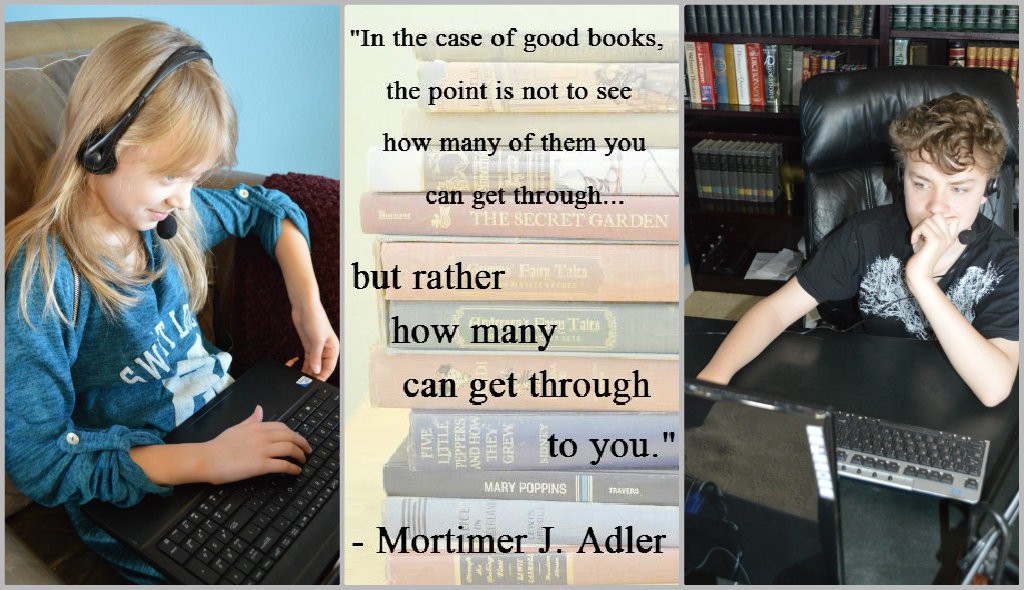 Further, his understanding is greater to the degree that his account is the one that comes closest to the cause itself. The discussion method facilitates the student’s quest for understanding by requiring him to answer questions on his own, to ponder the validity of what others have said or written, and (not the least of which) to give reasoned support of his own opinion to the other students in the group. While the discussion method is a powerful tool, it is by no means the only activity by which people learn. There are three distinct activities by which learning takes place.
Further, his understanding is greater to the degree that his account is the one that comes closest to the cause itself. The discussion method facilitates the student’s quest for understanding by requiring him to answer questions on his own, to ponder the validity of what others have said or written, and (not the least of which) to give reasoned support of his own opinion to the other students in the group. While the discussion method is a powerful tool, it is by no means the only activity by which people learn. There are three distinct activities by which learning takes place.
The first type of learning activity is to memorize material, and while memory skills are essential to learning, what one memorizes, one can also forget. The second activity is the development of intellectual skills such as adding, reading, and writing. The second method draws on the foundation of the first. For example, since one learns to read by reading, there are certain rules of phonics which are memorized that assist in the process.
Development of these intellectual skills is best carried out the closer the ratio between the number of students and teachers approaches 1 to 1. Teaching a young child how to write a cursive “a” takes some time and attention. Teaching 24 to 30 children at the same time how to do the same task is simply not efficient. Accordingly, it becomes evident that homeschooling is ideally suited to these fundamental learning activities. It is important to remember, however, that these activities are each ordered to the third activity, that is, the activity of increasing understanding. The activity best suited to developing understanding is participation in a principled discussion among other students who challenge one another to think as they all search for truth together.
Man does not forget that which he understands, and when a man understands both the world he lives in and his true place in it, he is empowered with the ability to choose rightly for his own betterment and the betterment of those around him. Additionally, it is important to note that the activity of increasing understanding is not limited to the material world. The phrase “faith seeking understandi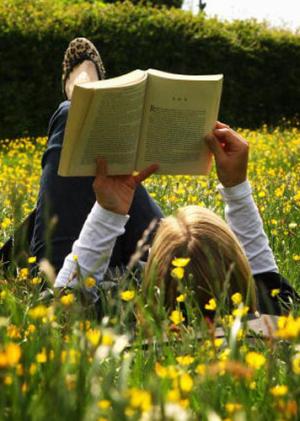 ng” acknowledges that even those things we know by the grace of religious faith are not contrary to reason, even if they happen to be above reason. Articles of faith are known by grace and divine revelation, yet one can increase understanding of much that is held by faith. This is possible because faith and reason are complementary, they go hand in hand. Even Jesus employed discussion to force his disciples to articulate what they held by faith when he asked, “But whom do you say that I am?” Through parables and returning question for question, Jesus engaged the minds, the reason, of those with whom he spoke.
ng” acknowledges that even those things we know by the grace of religious faith are not contrary to reason, even if they happen to be above reason. Articles of faith are known by grace and divine revelation, yet one can increase understanding of much that is held by faith. This is possible because faith and reason are complementary, they go hand in hand. Even Jesus employed discussion to force his disciples to articulate what they held by faith when he asked, “But whom do you say that I am?” Through parables and returning question for question, Jesus engaged the minds, the reason, of those with whom he spoke.
It is a fact of human nature that a man often thinks he knows something until he is forced to articulate it. In other words, an indistinct “knowledge” of something – which is really little more than a feeling – reveals its true nature in the process of being brought into the light of discussion. The beauty of the process is that in finding the limit of our knowledge we not only discover where our ignorance ends, but also where our true knowledge begins. Possibly this was the case when Peter’s response to Jesus required him to say, “Thou art Christ, the Son of the living God.”
It has been said here that homeschooling is ideal for the foundational learning activities of intellectual skill development. On the other hand, homeschooling parents will immediately encounter problems if they seek to have their children engage in serious discussion with other children reading the same works and learning at the same level. Even a large family with many children schooling at home cannot have everyone reading and discussing The Iliad or Democracy in America (to name only two) at the same time or at the same level of comprehension. The Socratic discussion requires the challenge of one’s peers in order to push the student to excel at his greatest intellectual capacity. How then are homeschooling parents to provide such an opportunity for their children? The answer is found in the rapidly increasing opportunities for “distance learning” made possible by the Internet.
Seemingly overnight the Internet has had an unprecedented impact on the culture of the entire world. People who find themselves on opposite sides of the Earth can now communicate instantaneously using personal computers which become less expensive almost daily. Whether people are buying books online, “chatting” with others with their keyboards, sending e-mail, or conducting live conferencing with sound, everyday the Internet is effectively removing the need to be near someone in order to engage them in a wide range of activities. It is now possible to create Internet classrooms that allow students from all over the world to speak to one another with live audio. This is the natural solution for homeschool families seeking a Socratic discussion opportunity, and as the technology develops, the ability to see, hear, and speak to many individuals around the world – all at the same time and all in the same virtual “room” – will become commonplace.
KRESTA IN THE AFTERNOON with Angelicum President, Patrick Carmack
Please note:
Interview with Patrick Carmack runs approximately from minute 8:25 to 18:00.
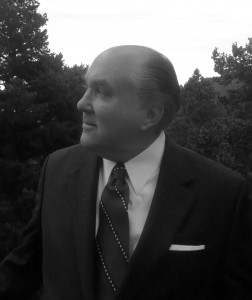
Patrick S. J. Carmack
Wisdom is generally acknowledged to be the highest good of the human mind, whether this be recognized as knowledge of first principles and causes or as a contemplative gaze at Wisdom itself. How does one obtain wisdom? The means is primarily conversation with great and wise persons who have already advanced far along the paths of knowledge and understanding to wisdom. As Angelicum Chairman, the philosopher Dr. Peter Redpath succinctly puts it when addressing audiences of young people interested in understanding why they ought to read great books: “If you wish to become wise, learn from wise people.”
Because persons of great wisdom are rare and generally unavailable to us due to distance or death, we enter into conversation with them through their books, which record their thought. In doing so we soon discover how all the authors of great books used this same method of study themselves—conversing with or reading the great books of the sages of earlier generations as their starting point. In so doing they avoid having to re-invent the wheel each generation; they avoid mistakes already dealt with and build on existing foundations. Indeed, what would be the point in studying mediocre works by lesser luminaries or beginning all thought over from square one every few years, when great books by the wisest people – the great sages of civilization – are now readily available?
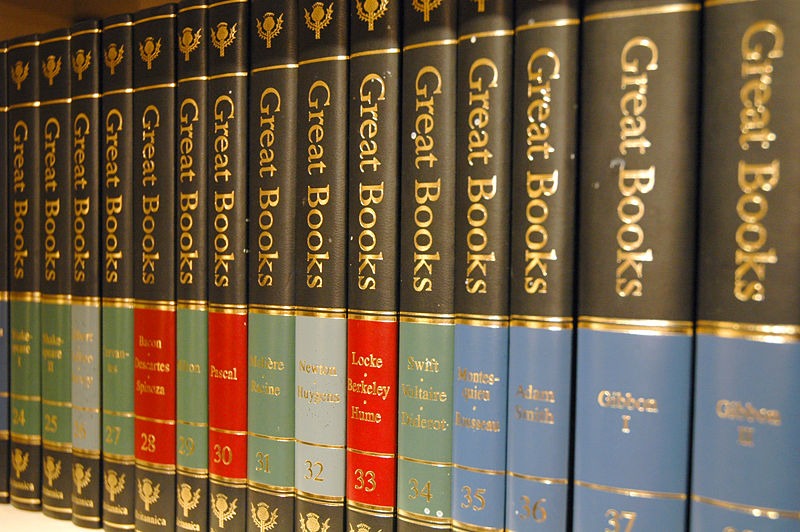 “The reading of all good books is indeed like a conversation with the noblest men of past centuries who were the authors of them, nay a carefully studied conversation, in which they reveal to us none but the best of their thoughts.” – Descartes, Discourse on Method, I
“The reading of all good books is indeed like a conversation with the noblest men of past centuries who were the authors of them, nay a carefully studied conversation, in which they reveal to us none but the best of their thoughts.” – Descartes, Discourse on Method, I
Through the internal dialectical process found in the great books – the references, discussions, critiques and responses to the thought of their wise predecessors, referred to as the “Great Conversation” by Hutchins – we may closely follow the development of the investigations conducted by these sages into the great ideas they have pondered and about which they have written. This manner of study has always been the normative approach to wisdom in the West.
“Until lately the West has regarded it as self-evident that the road to education lay through great books. No man was educated until he was acquainted with the masterpieces of his tradition…they were the principal instruments of liberal education…The goal toward which Western society moves is the Civilization of the Dialogue. The spirit of Western civilization is the spirit of inquiry. Its dominant element is Logos.” – Robert M. Hutchins
No ongoing dialogue comparable in duration or breadth exists in the East. Pope Benedict XVI has mentioned that Western civilization has become the dominant civilization because of its closer correspondence to human nature. In his 2006 Regensburg lecture he noted that there exists a real analogy between our created reason and God who is “Logos” (meaning both reason and word). To abandon reason and hence the dialogue which is both its natural expression and necessary aid would be contrary both to the nature of man and of God. The cumulative wisdom of the West is preserved and transmitted in its great music and art but most particularly in the study of its great books which record the results of three millennia of dialogue guided by reason concerning the most profound ideas with which we all must grapple such as existence, life, love, happiness, etc.
This manner of learning is greatly facilitated when the reader also engages in a dialectic (from the ancient Greek dia – “one with another”) exchange – a live conversation (in person or now online) – with other readers of the same books, probing and discussing the great ideas contained in them and carrying them a few steps farther. This method of learning is often referred to as the Socratic method after the ancient Athenian philosopher Socrates, who initiated its use as a deliberate way to obtain understanding and wisdom with the aid of other minds at work on the same idea. This same “questioning” method was used by Christ, who often answered questions with questions, parables and stories that left the hearers wondering, questioning and thinking. He already knew the answers, as Socrates often did. The goal was not merely indoctrination of the me mory with information, facts and knowledge, but mind-and-life-changing thinking, understanding and ultimately, wisdom.
mory with information, facts and knowledge, but mind-and-life-changing thinking, understanding and ultimately, wisdom.
The Angelicum Great Books Study Guides are intended for students (if one is still learning one is a student) who have read lesser works, particularly the classics for young people. Given that preparation students high school age (14) and up, including adults, can pick up Homer’s Iliad and Odyssey or Herodotus’ Histories and other great works and enter into the seminal thought and most influential books of our culture and civilization. There is reason not to delay such education.
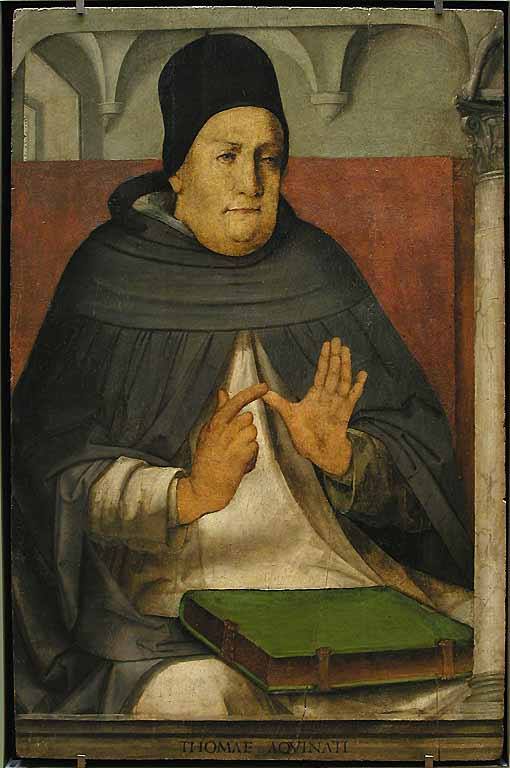 The great books are, for the most part, the most interesting and well written of all books. They were not written for experts. Their wide and enduring appeal to generation after generation testifies to that fact. Readers reasonably prepared for them will find them captivating, entertaining and enlightening. Naturally some readers will profit more than others from the great books, but all will profit from learning about the Trojan war, the heroes of ancient Greece, ancient civilizations, the early tragedies, the thought of Aristotle, Genesis, the Aeneid, the Confessions of St. Augustine, Chaucer’s Canterbury Tales, Dante’s Divine Comedy, selections from the Summa Theologica by St. Thomas Aquinas, Shakespeare’s plays and so on, since these works are foundational and/or profoundly influential on our way of life. These works are essential for participation in the Great Conversation mentioned above. That enduring intellectual dialogue spans nearly three millennia beginning with the works of Homer, the “Father of Civilization,” and proceeding through the centuries eventually incorporating the Old and New Testaments in a lengthy reformulation of classical civilization into Western civilization, which continues – albeit always under assault by various corrupting errors – right up to our day.
The great books are, for the most part, the most interesting and well written of all books. They were not written for experts. Their wide and enduring appeal to generation after generation testifies to that fact. Readers reasonably prepared for them will find them captivating, entertaining and enlightening. Naturally some readers will profit more than others from the great books, but all will profit from learning about the Trojan war, the heroes of ancient Greece, ancient civilizations, the early tragedies, the thought of Aristotle, Genesis, the Aeneid, the Confessions of St. Augustine, Chaucer’s Canterbury Tales, Dante’s Divine Comedy, selections from the Summa Theologica by St. Thomas Aquinas, Shakespeare’s plays and so on, since these works are foundational and/or profoundly influential on our way of life. These works are essential for participation in the Great Conversation mentioned above. That enduring intellectual dialogue spans nearly three millennia beginning with the works of Homer, the “Father of Civilization,” and proceeding through the centuries eventually incorporating the Old and New Testaments in a lengthy reformulation of classical civilization into Western civilization, which continues – albeit always under assault by various corrupting errors – right up to our day.
The principal guides in selecting the works of enduring appeal to be included in the great books, besides generations of readers, include the late, great Dr. Mortimer J. Adler, who worked for eighty years (from 1921 to 2000 A.D. when I had the memorable privilege of participating in his last Socratic discussion groups) to restore and keep the great classics, including particularly those by Plato, Aristotle and St. Thomas Aquinas, in the Western canon of great books. As Dr. Adler put it: “The great books constitute the backbone of a liberal education.” But read alone in our post-modernist context of radical skepticism the great books can easily be misunderstood and used for all manner of mischief. It was precisely to provide a deeper understanding of the importance and influence of the great books – to highlight what is true and great in them and to expose and defang whatever is false in them – that the Angelicum Great Books Study Guides were written and that we offer weekly, live and lively, Great Books discussions online.
Augmenting the work of Dr. Adler, is Joseph Pearce, the author of several critically acclaimed, best-selling biographies of great authors, who has diligently worked as the author and/or editor of the Angelicum Great Books Study Guides. Homeschoolers and other students will find in these guides a welcome and trustworthy means of introduction to the great books and to their careful and critical reading, planned to include eventually over 100 titles.
Finally, it is worthwhile to mention that study guides are merely introductory guides (with tests, questions and answer keys helpful for student assessment). The great books themselves are the primary texts, their authors our primary teachers, and our experienced moderators and Great Books Program students our fellow learners who are an indispensable part of the weekly Socratic discussions so important to understanding the great ideas contained in the Great Books.
Patrick S.J. Carmack
President, Angelicum Academy
January 18, 2008
